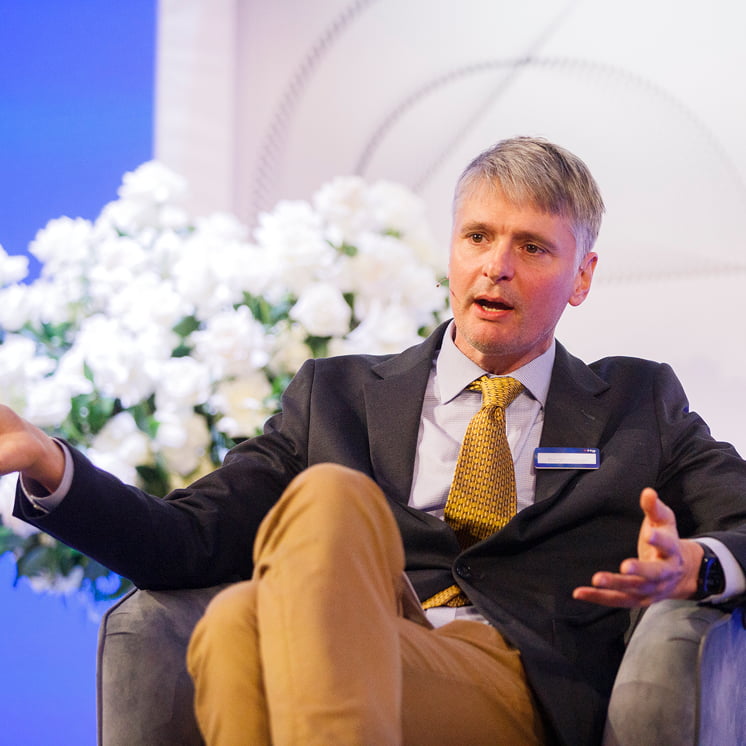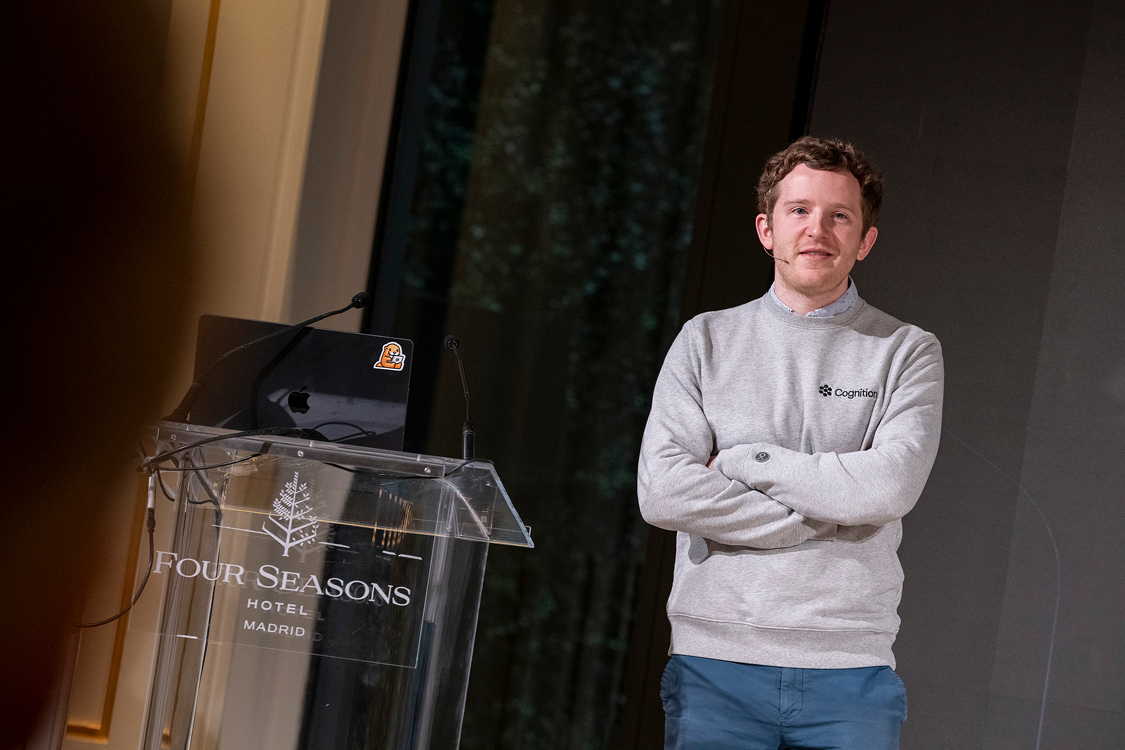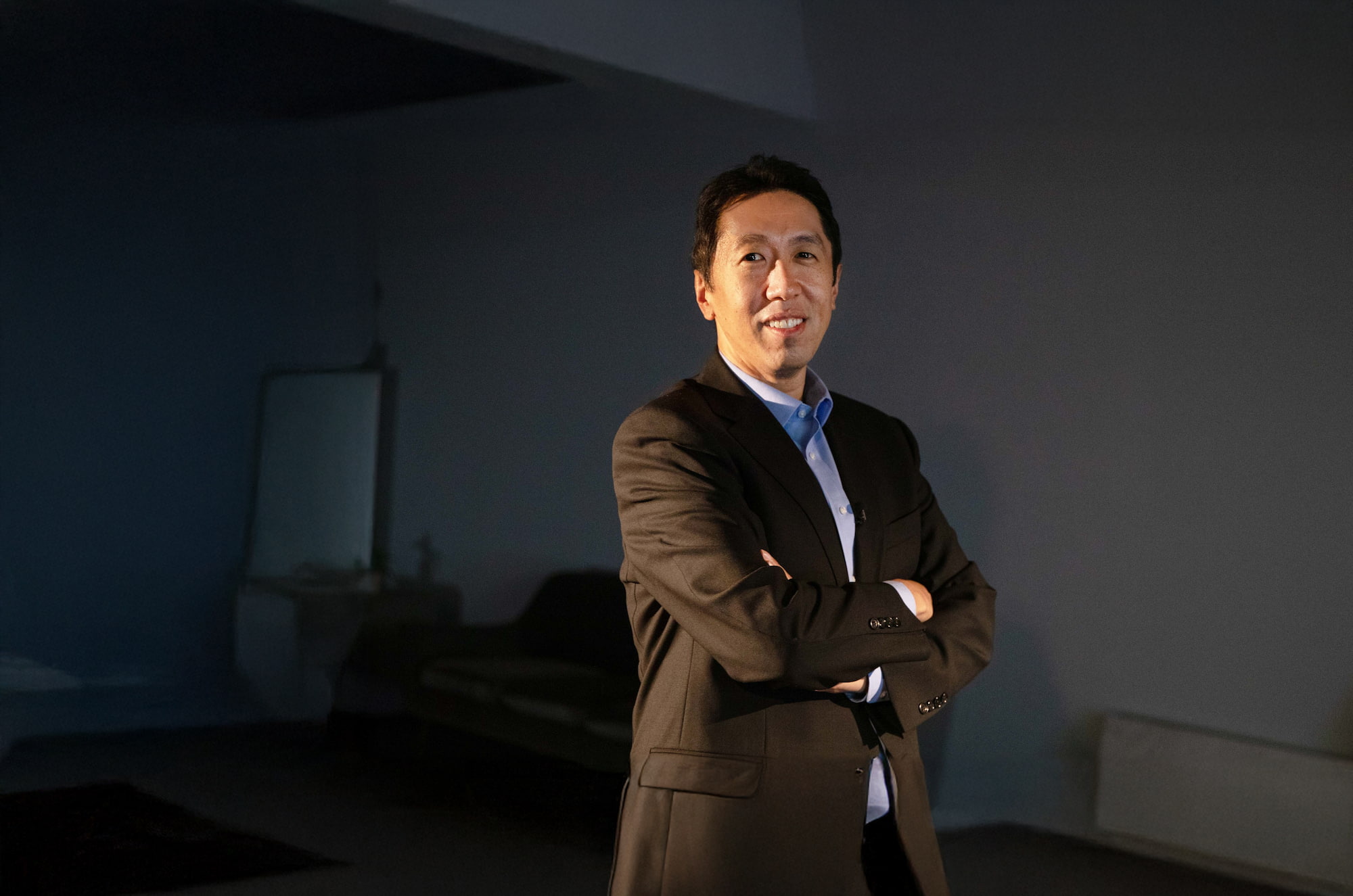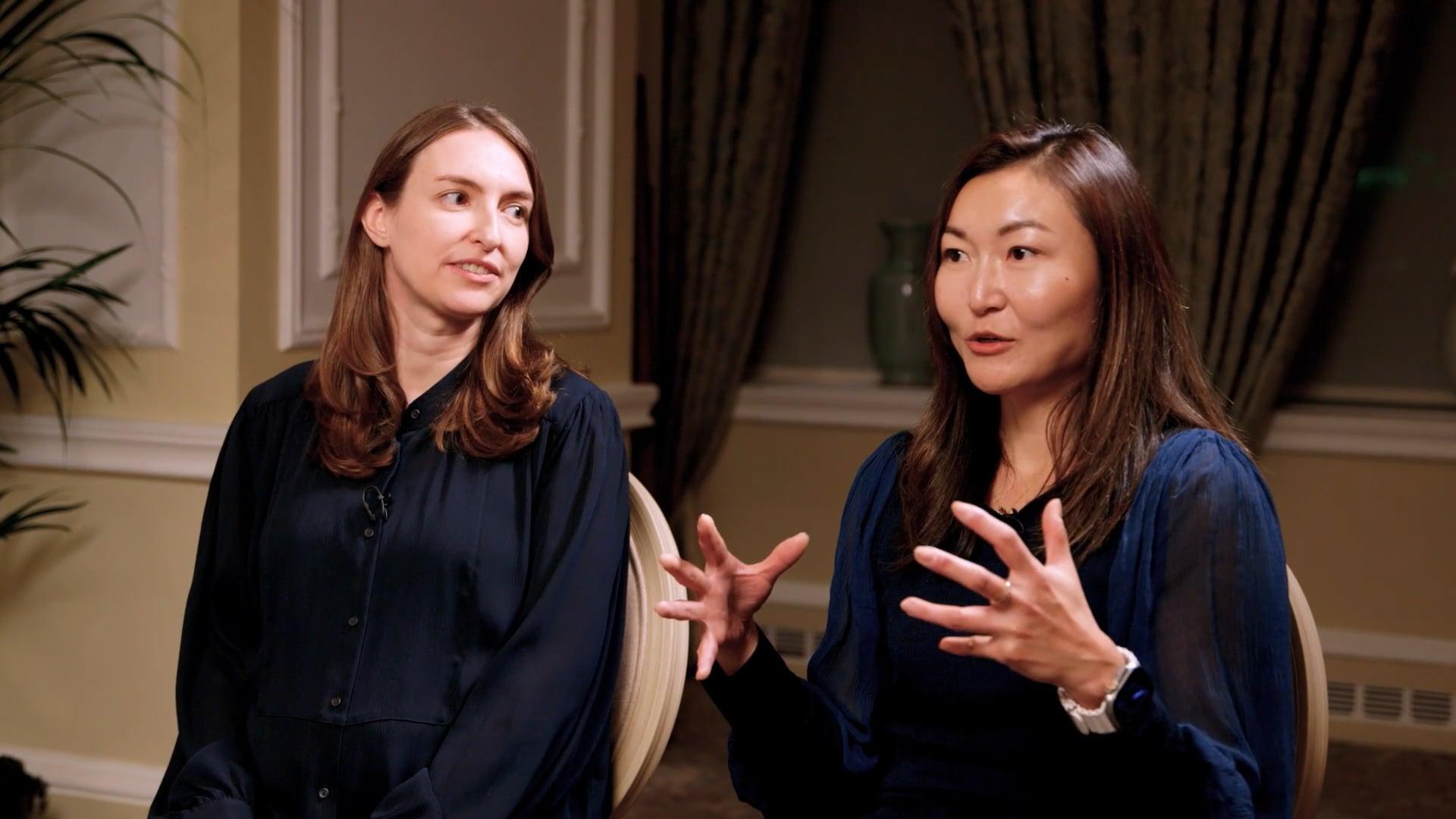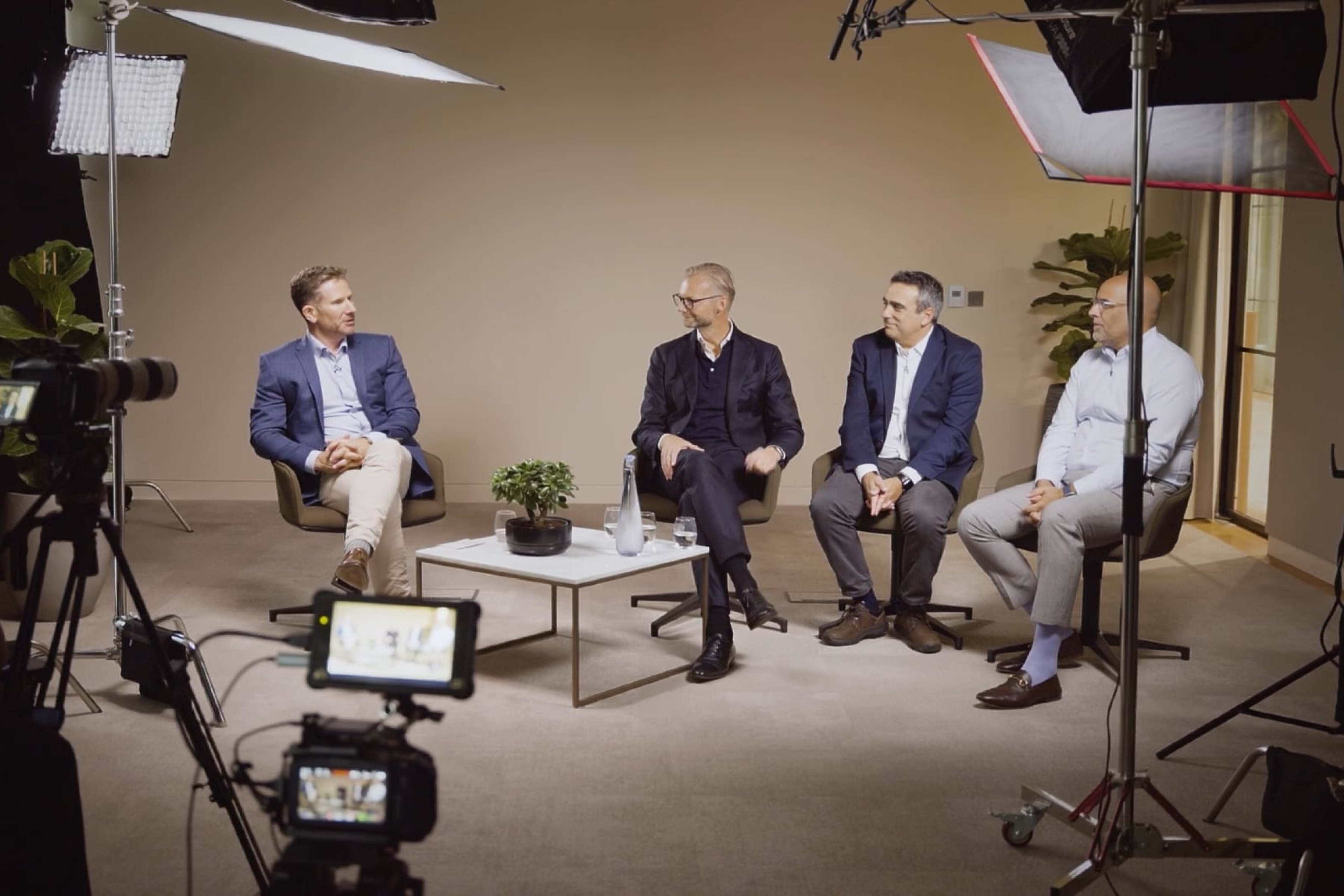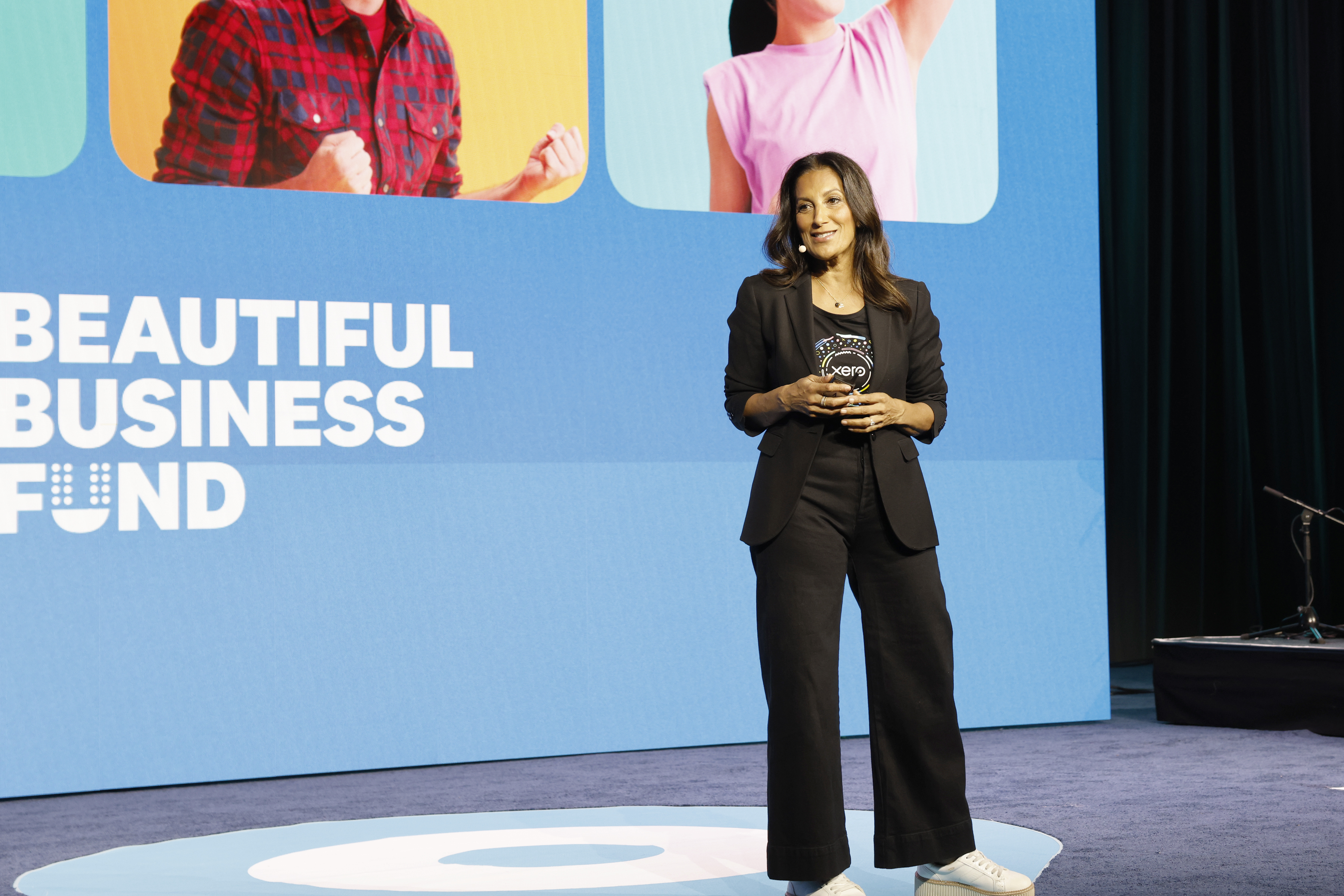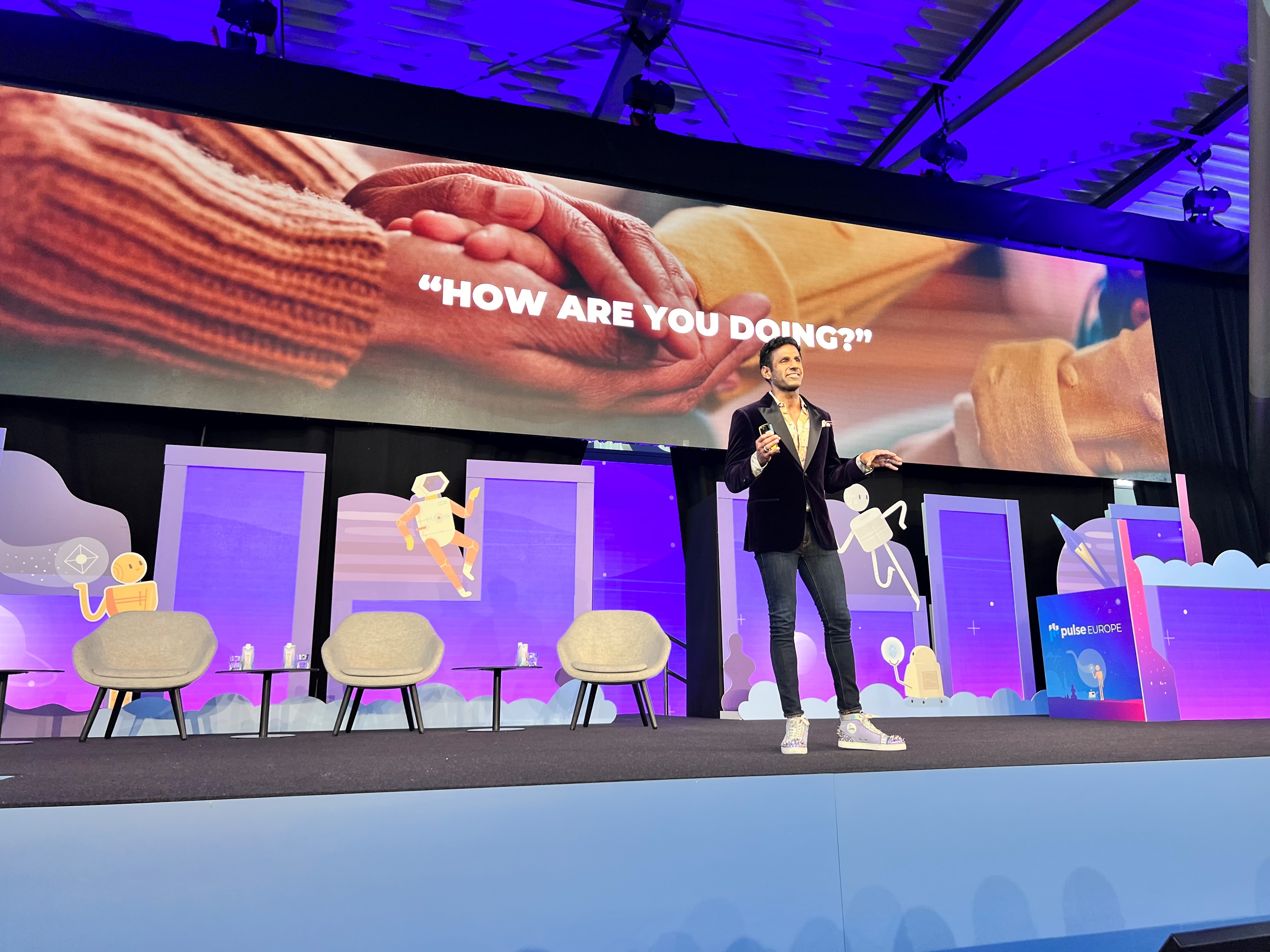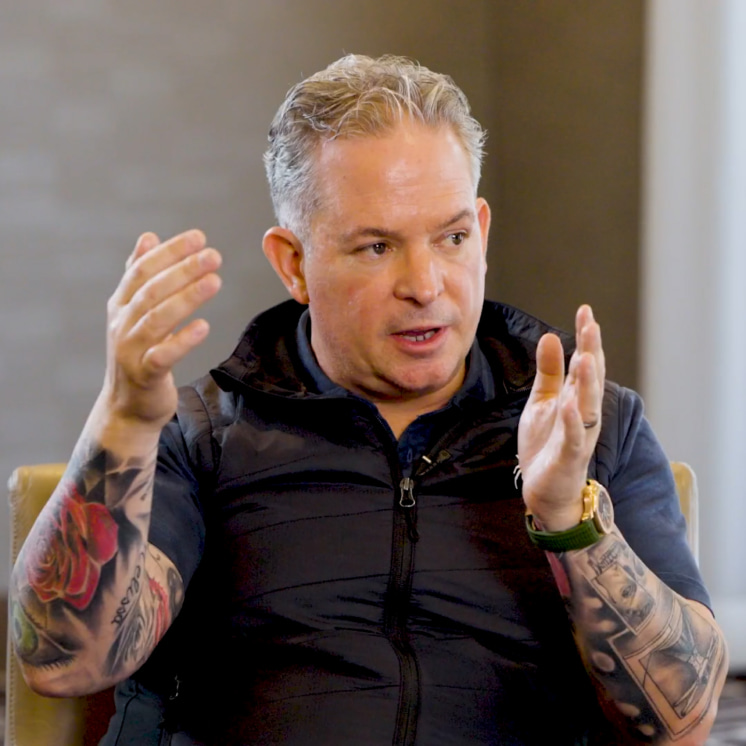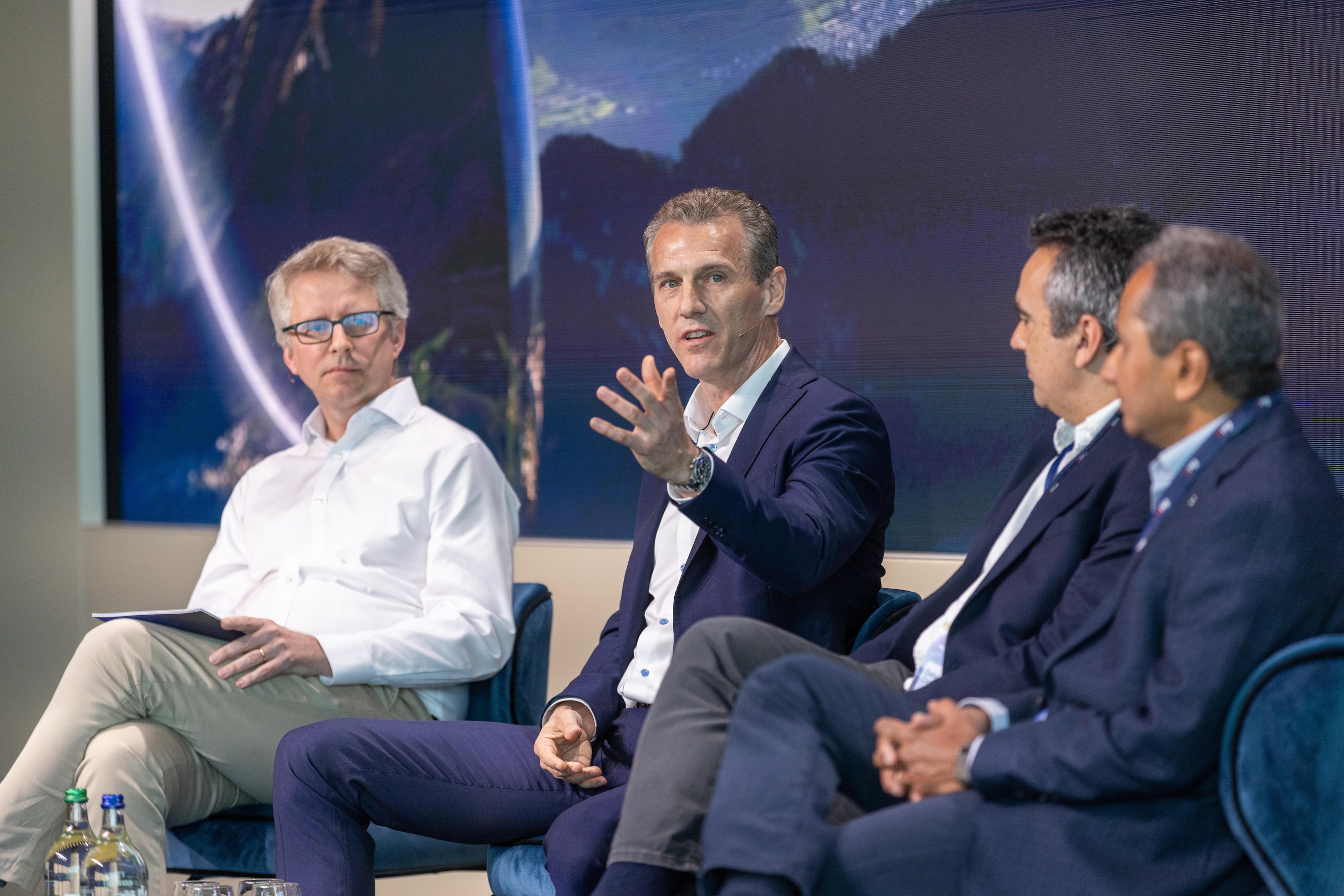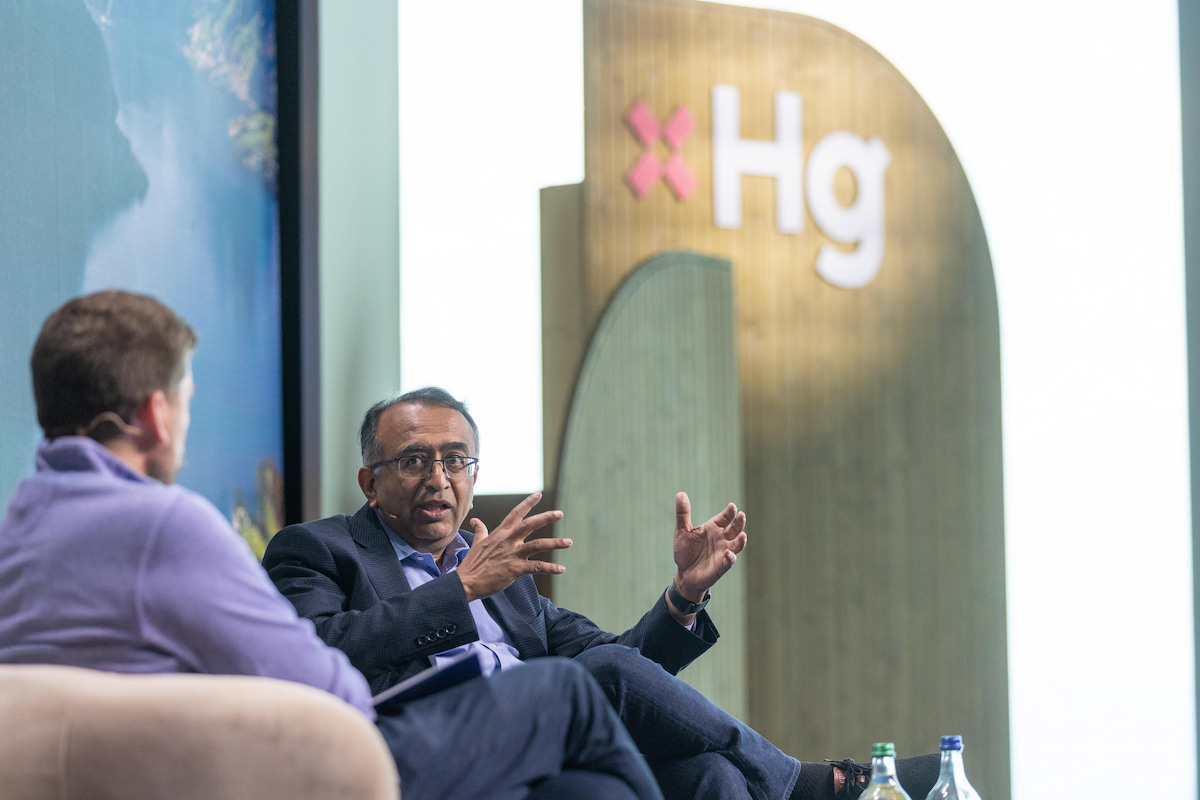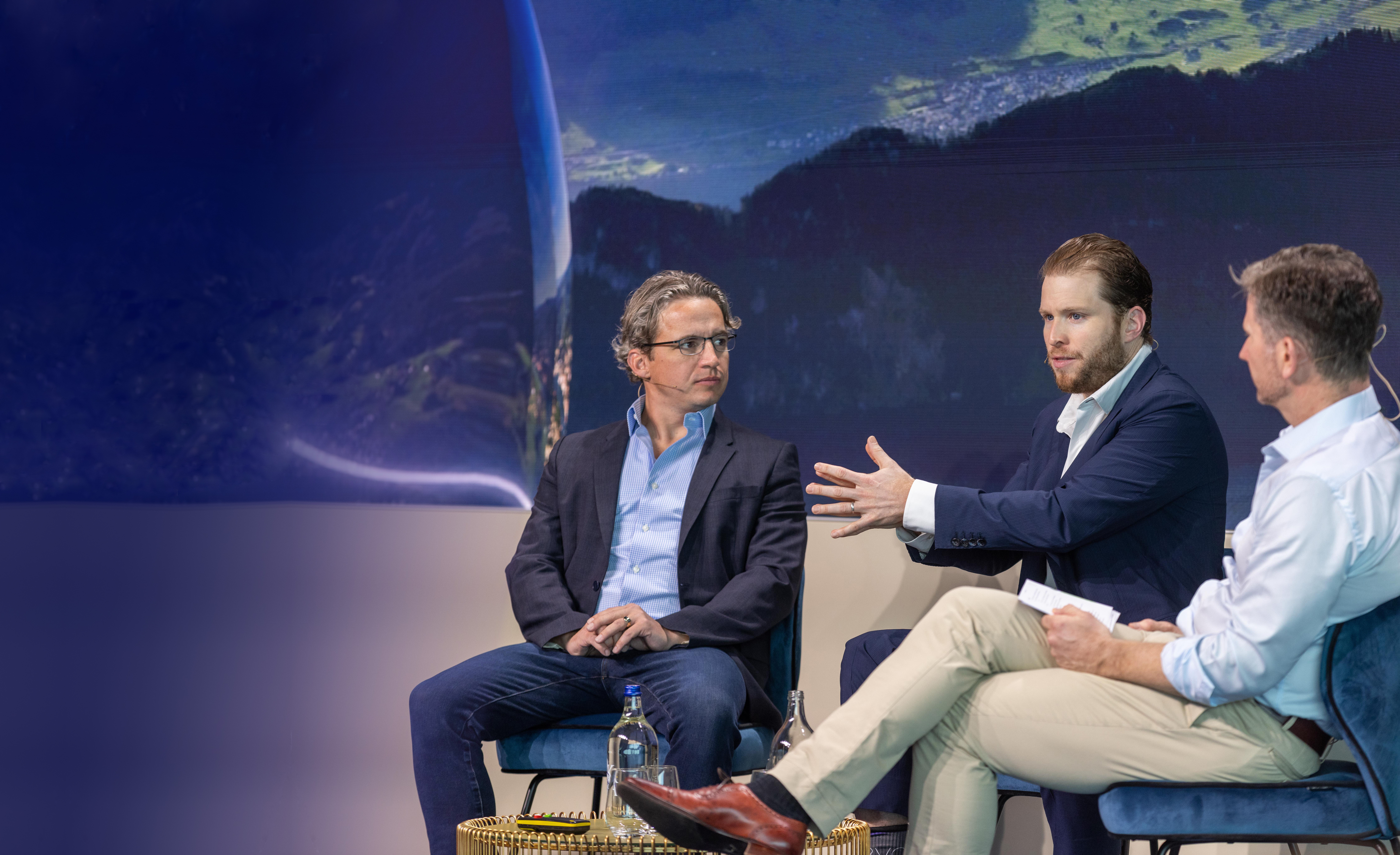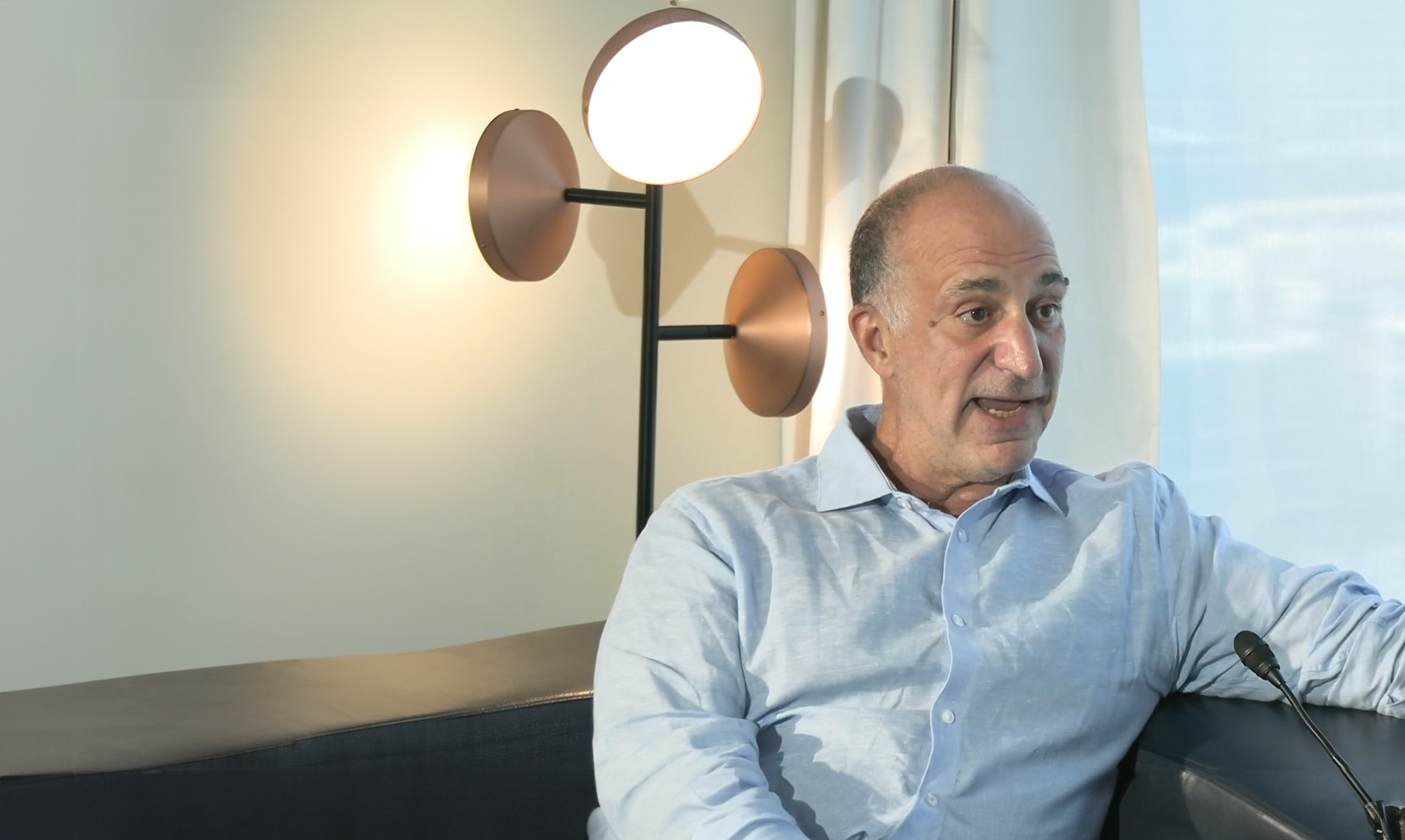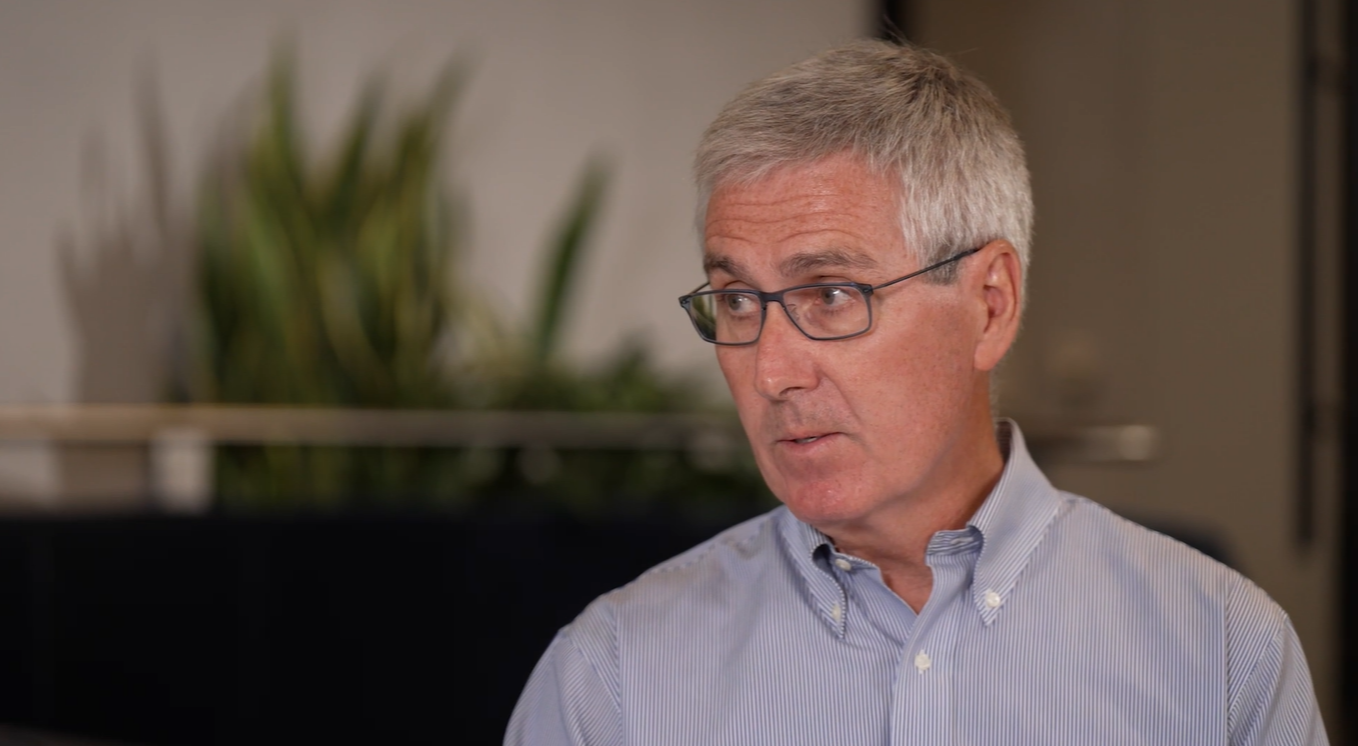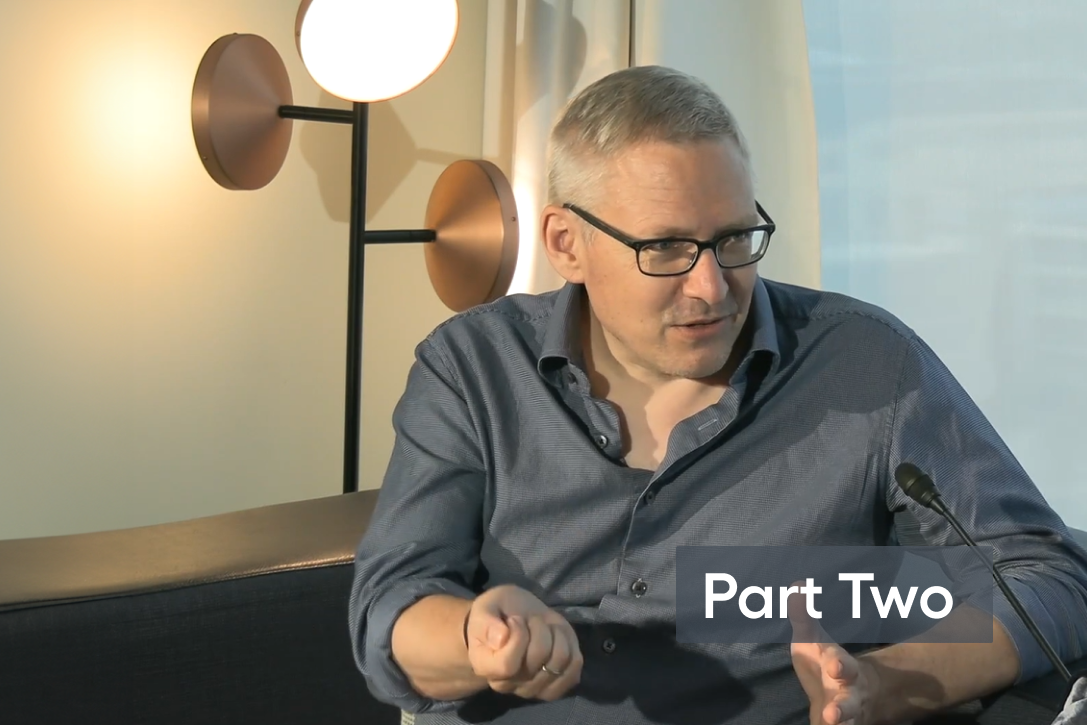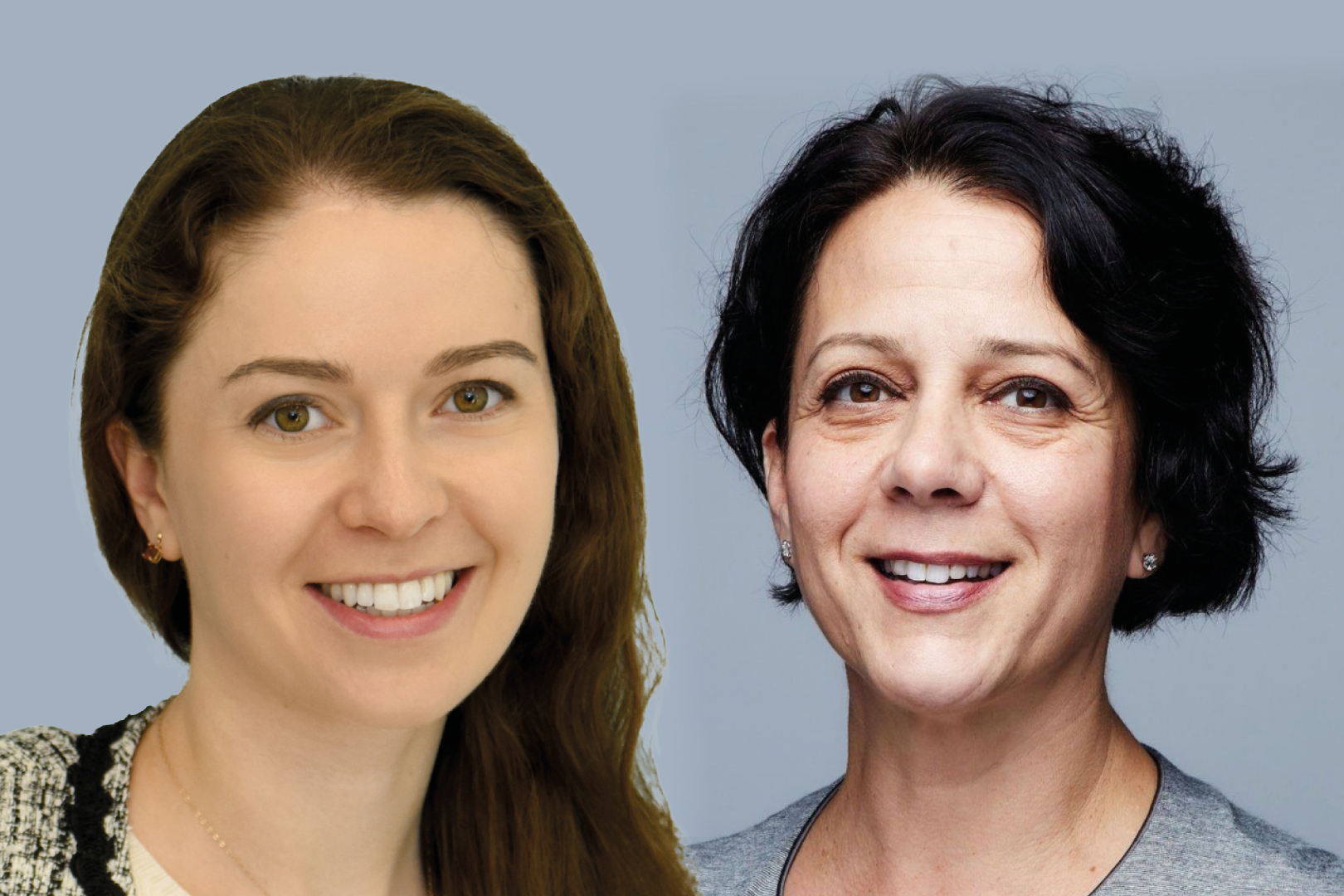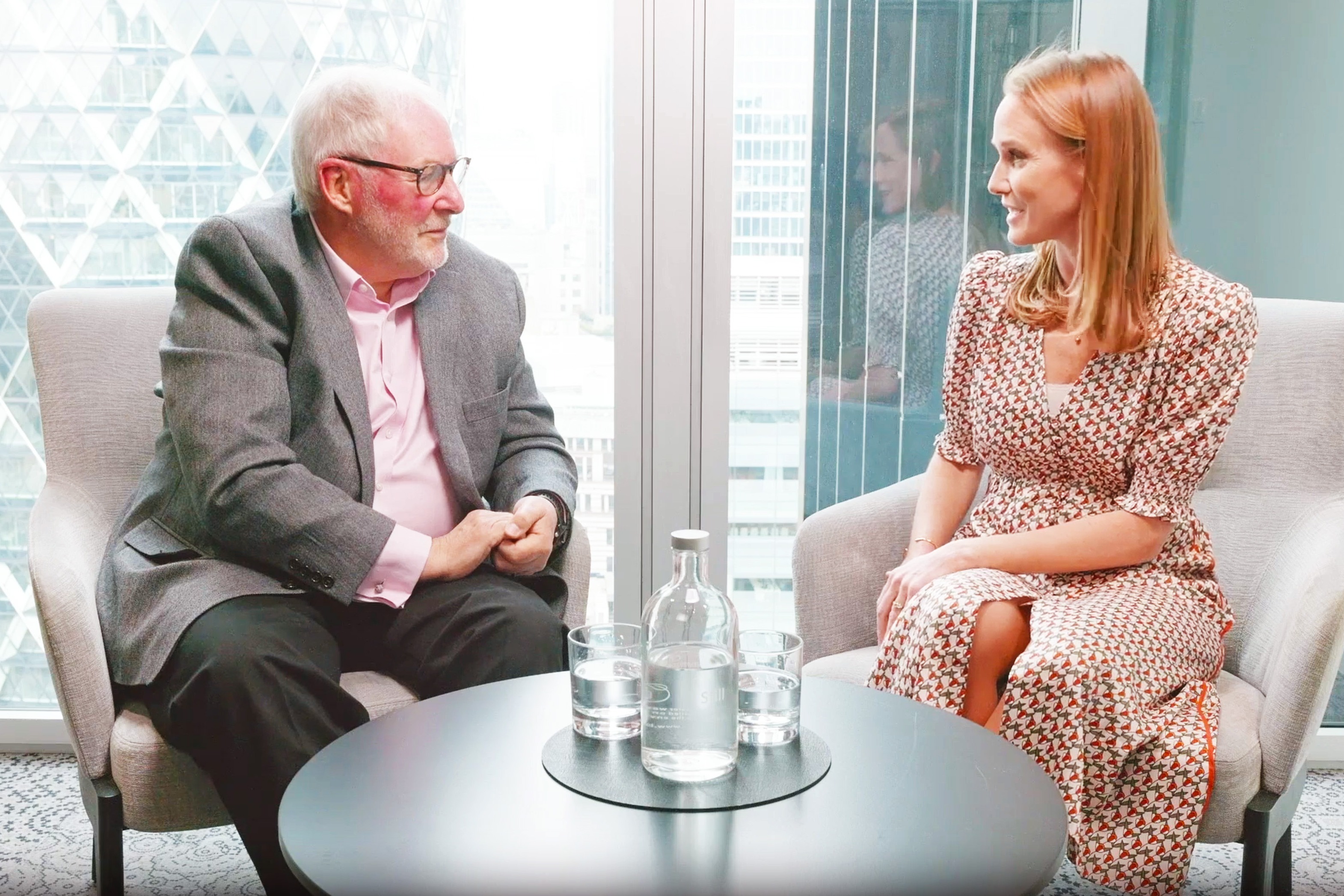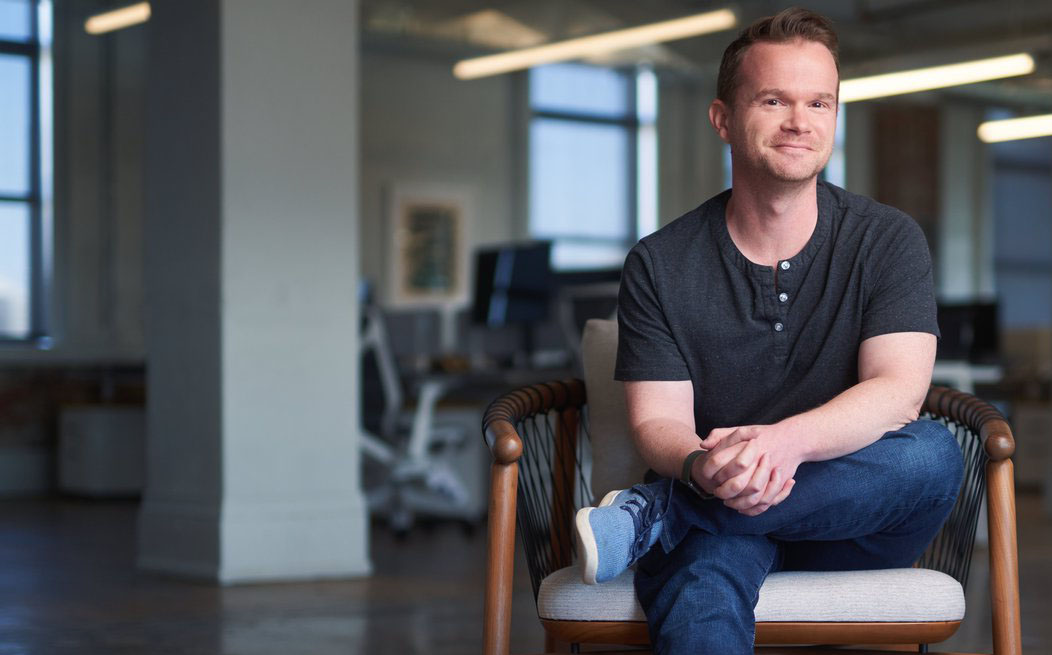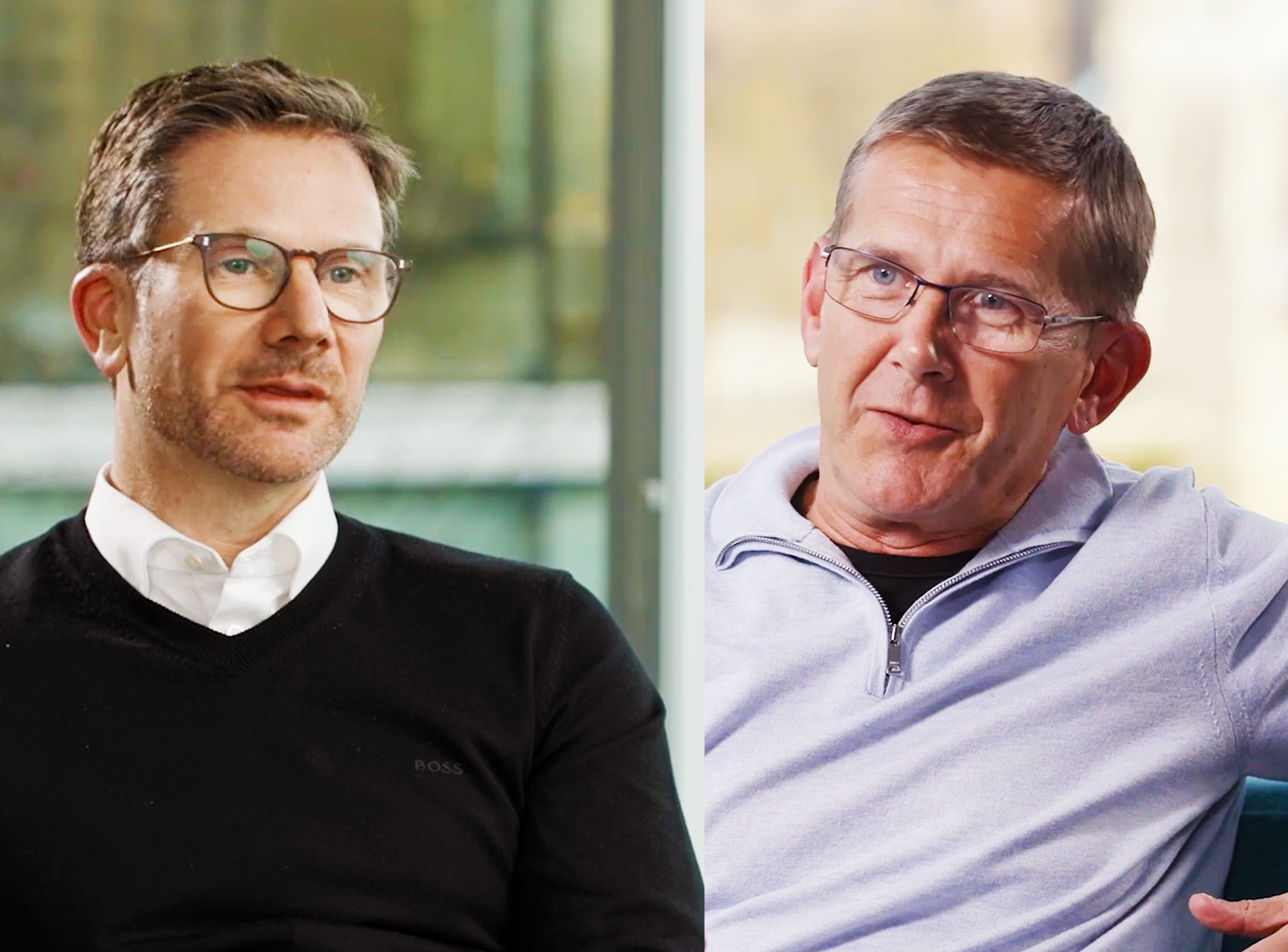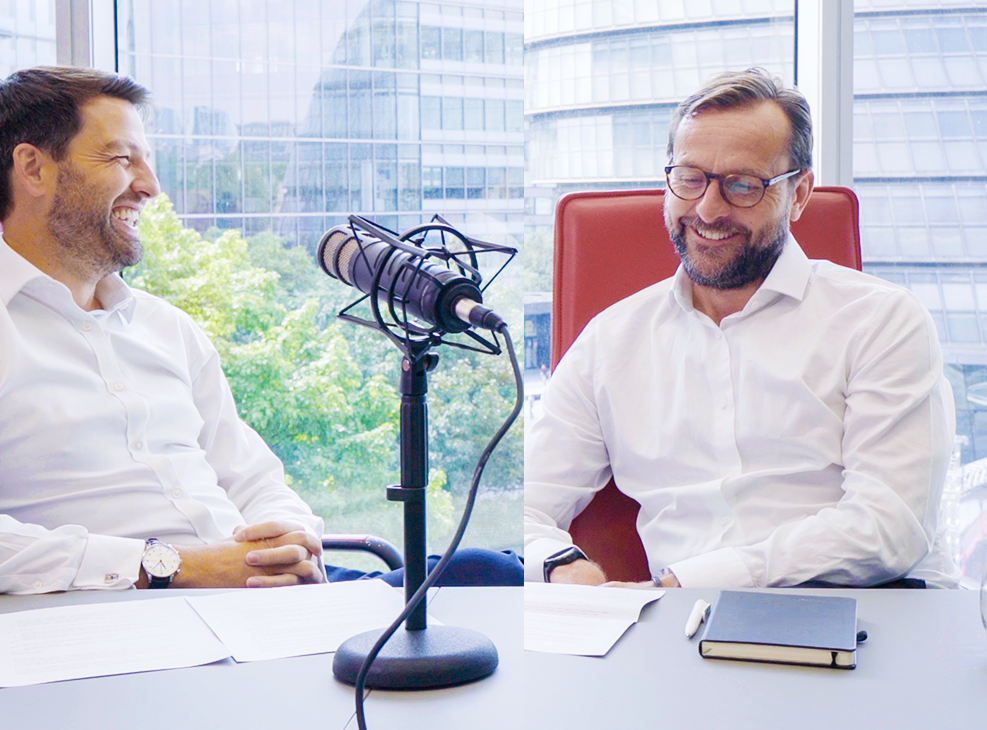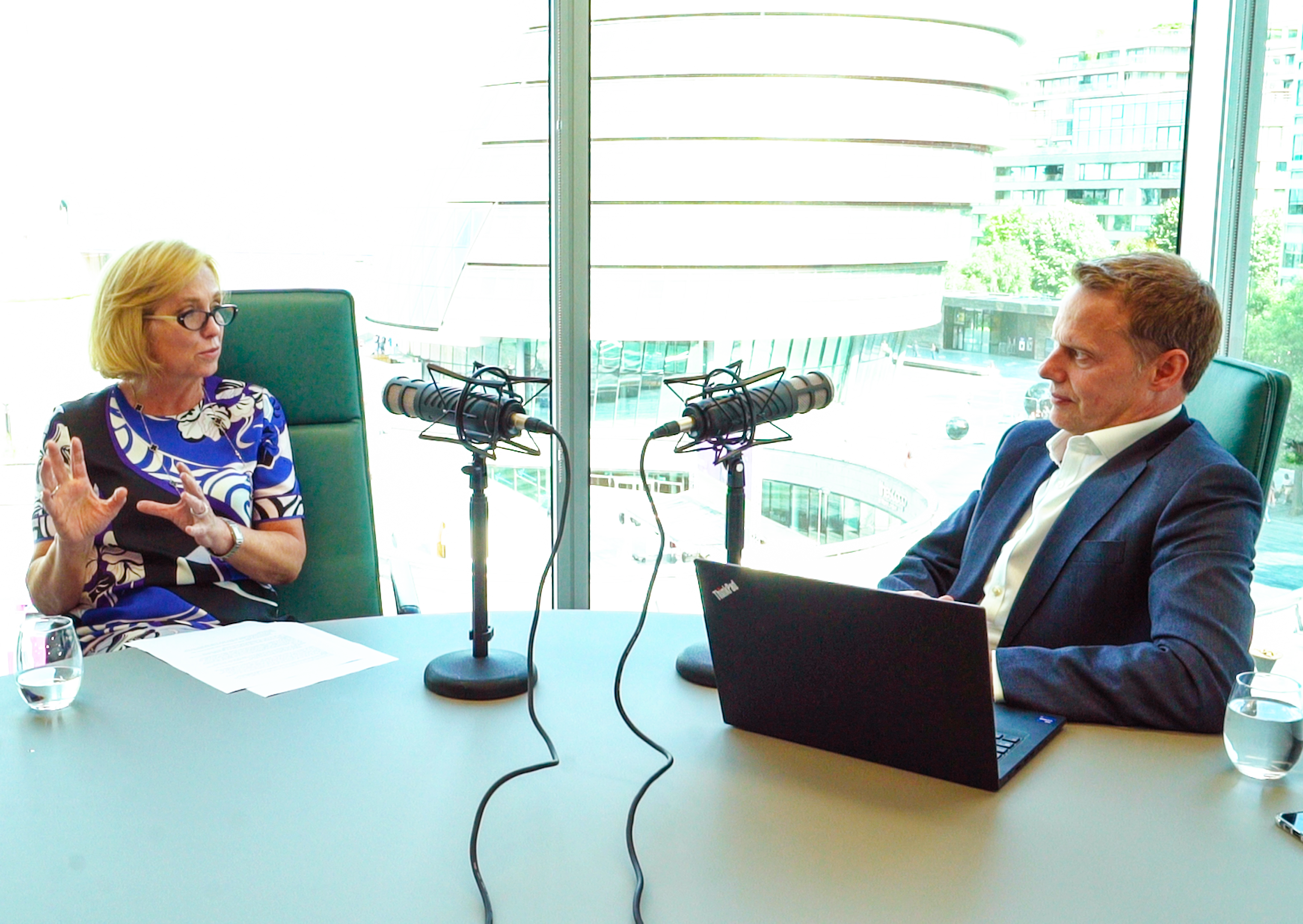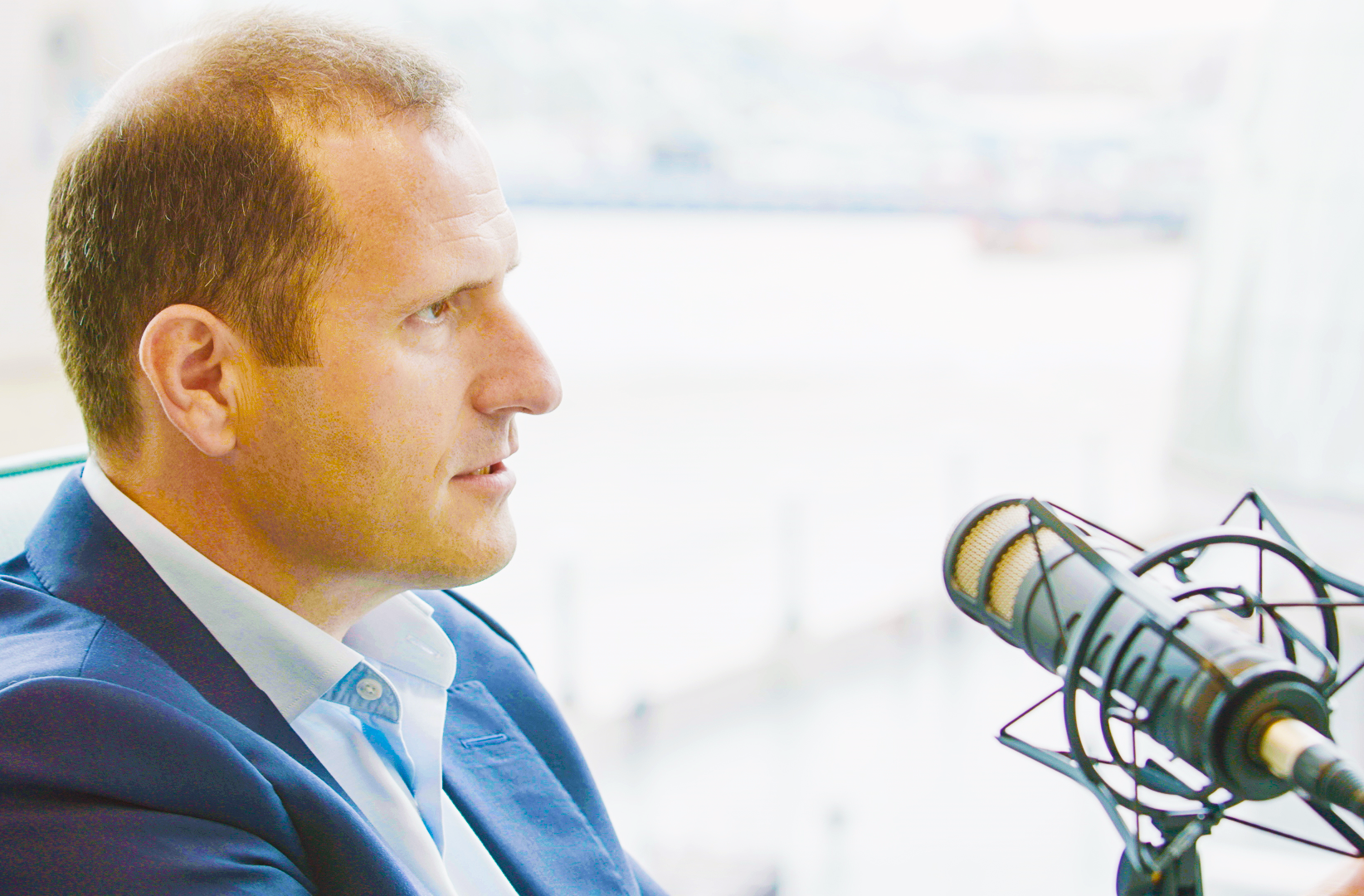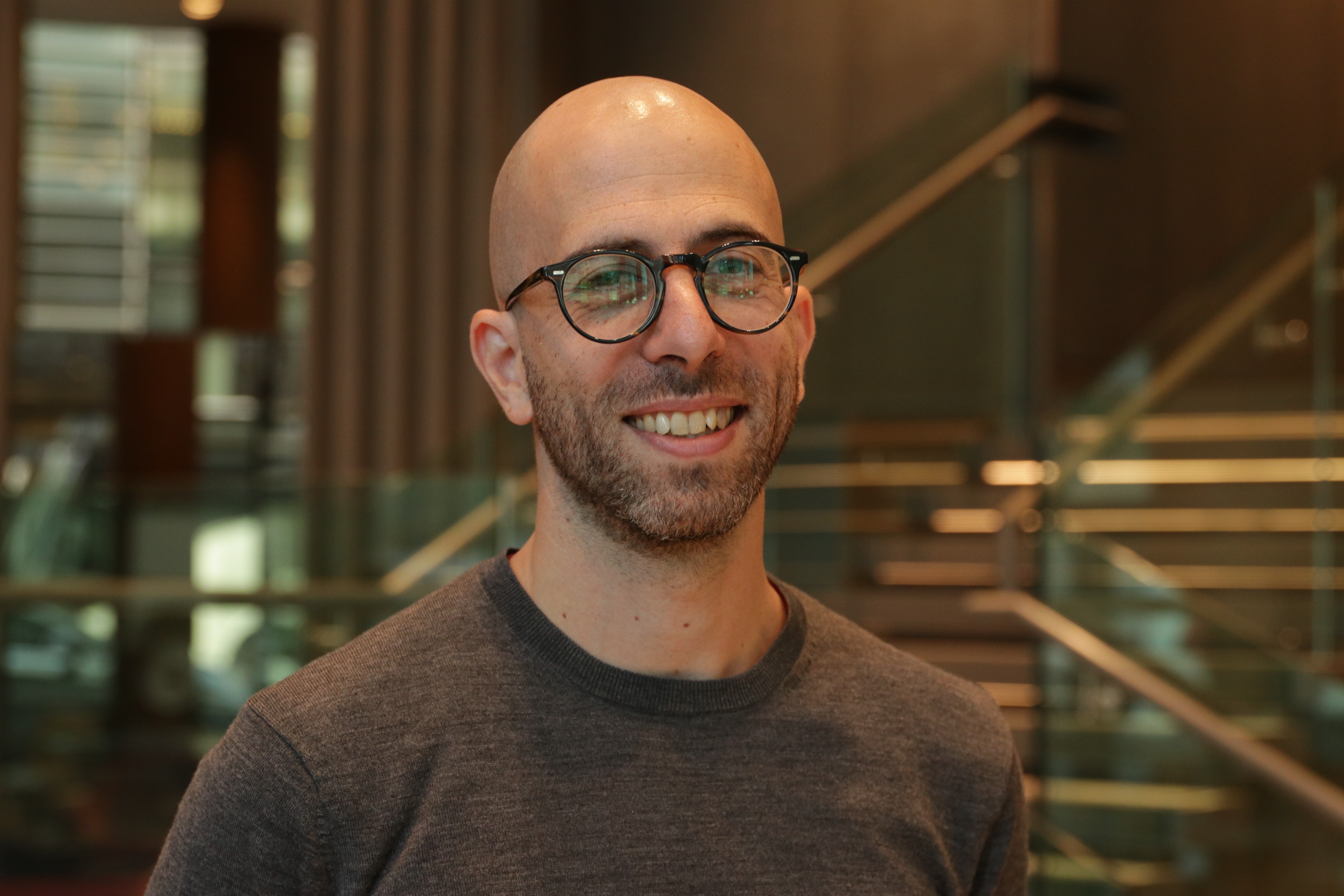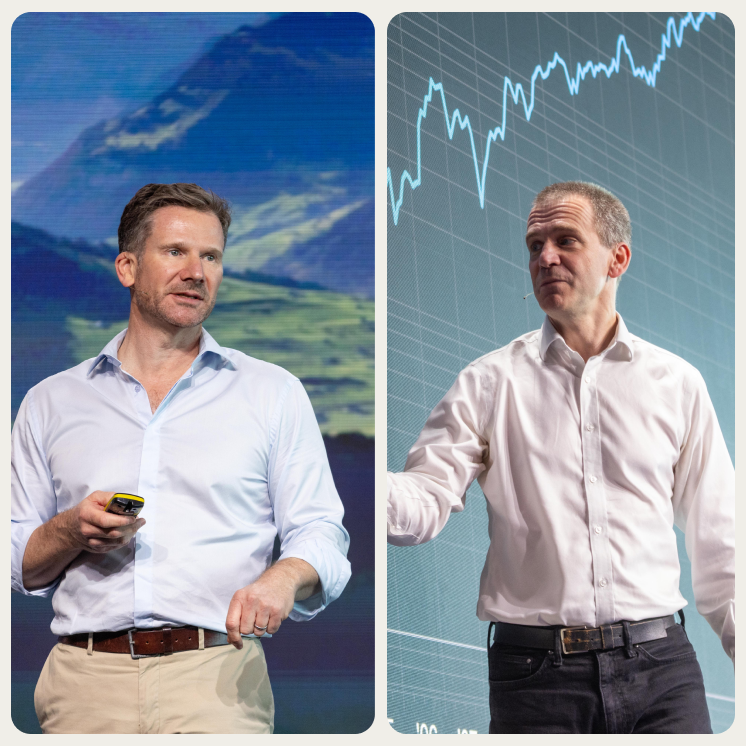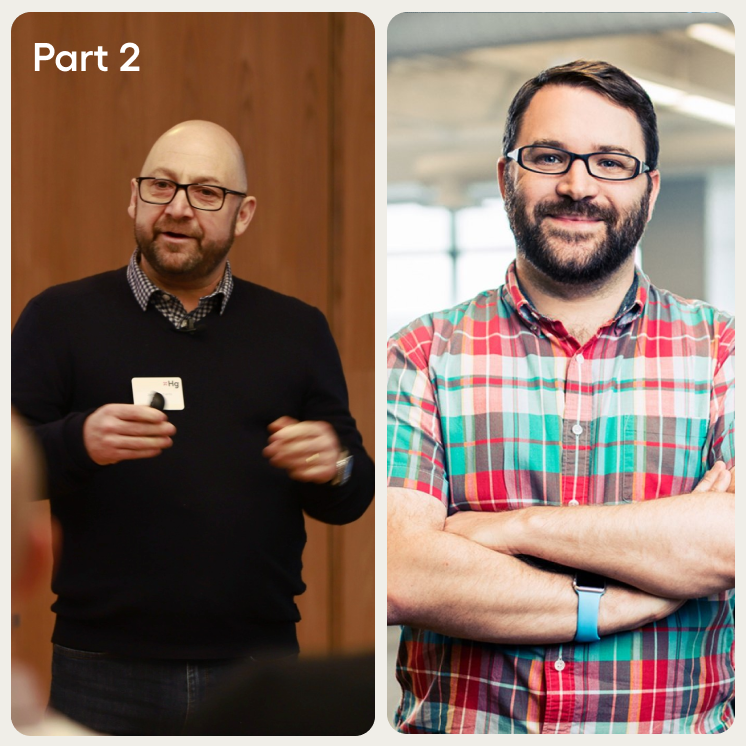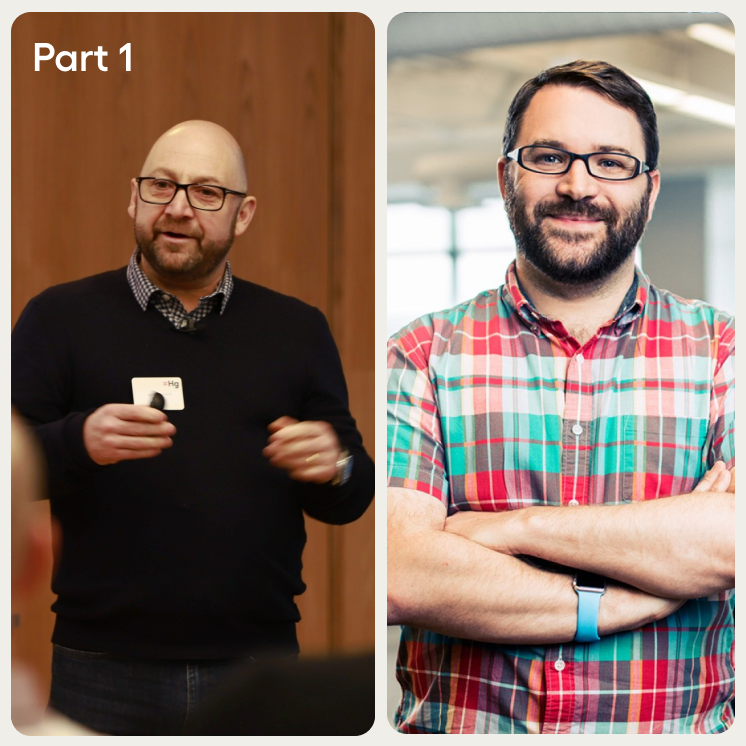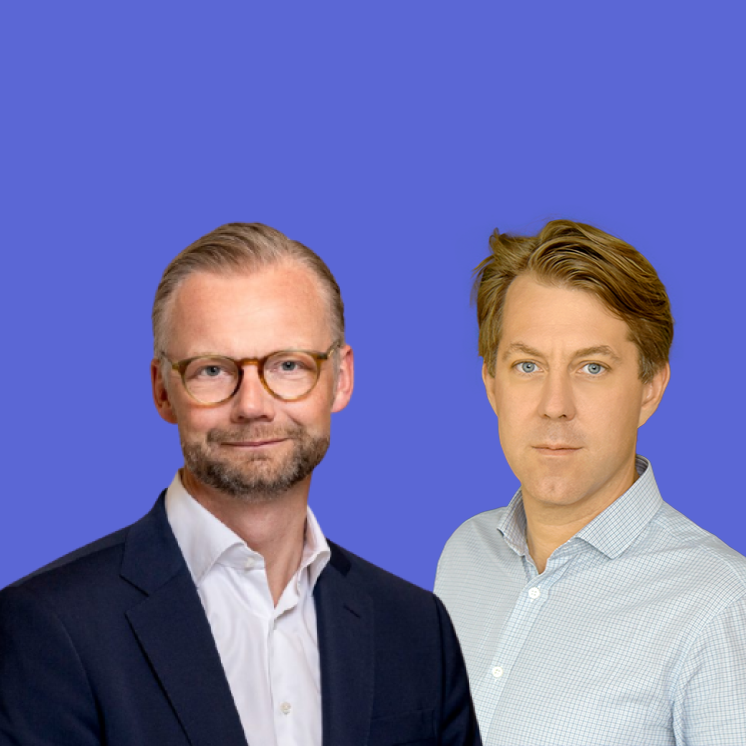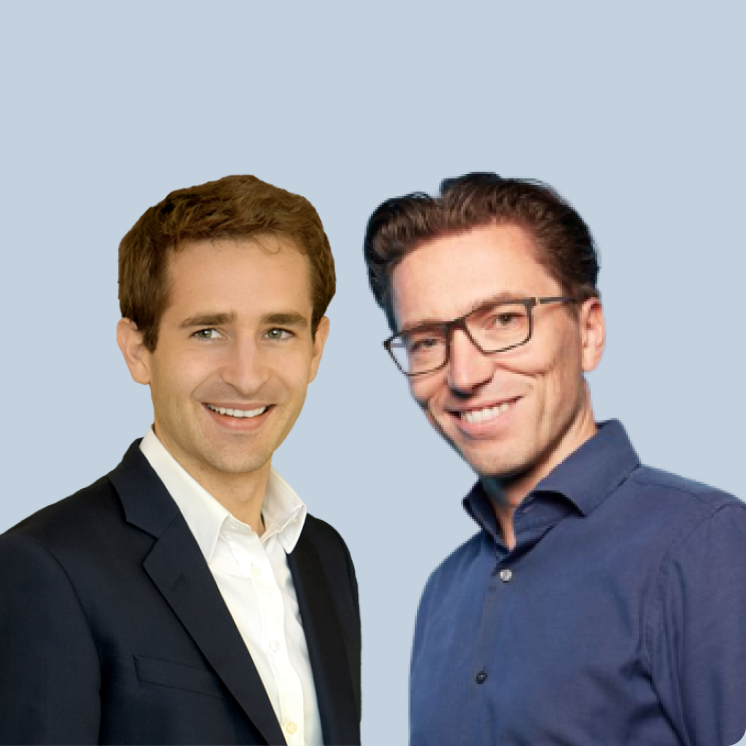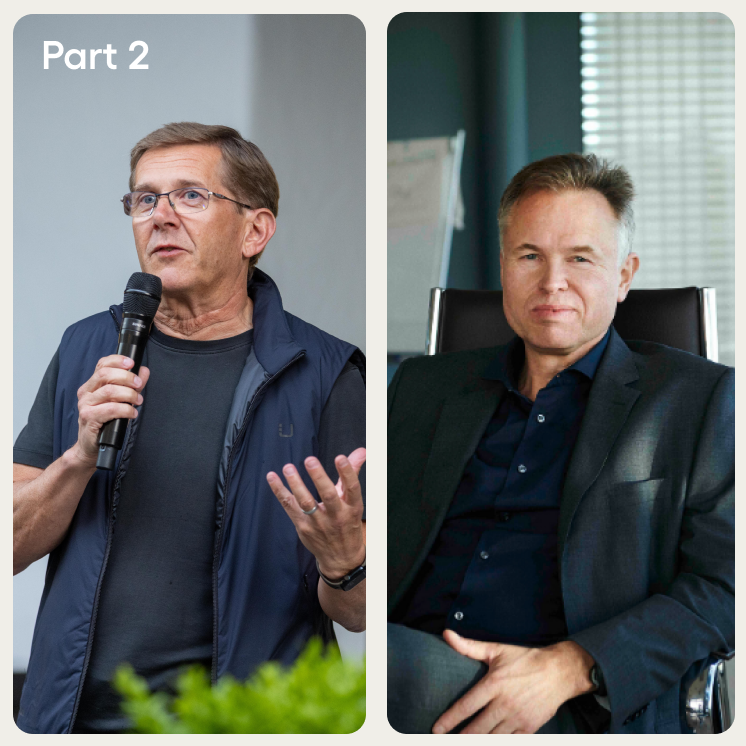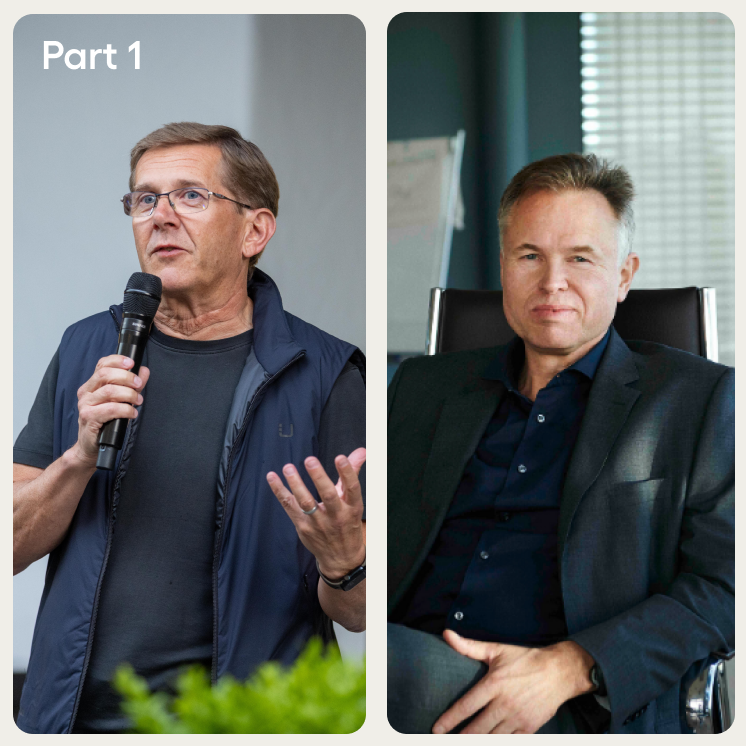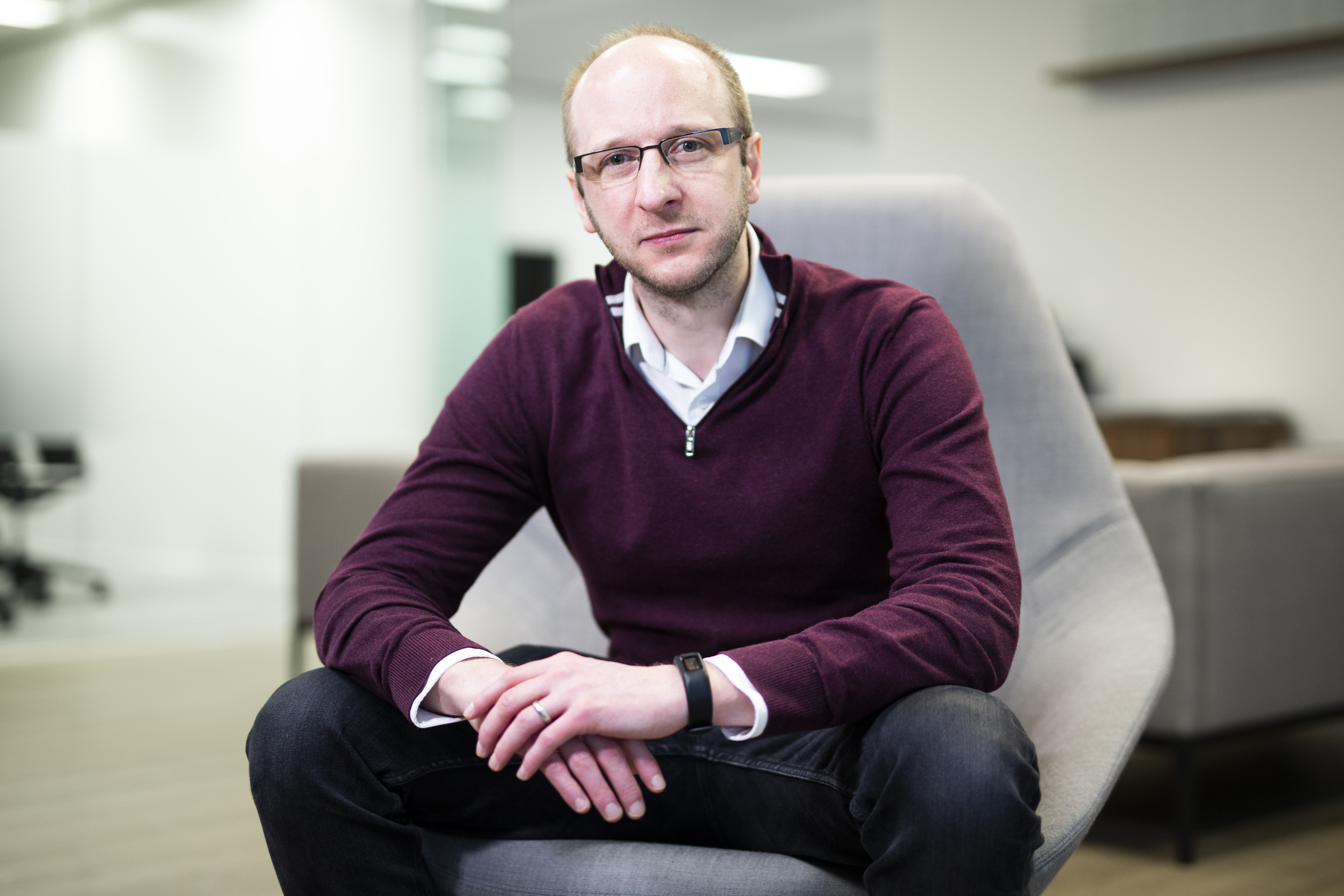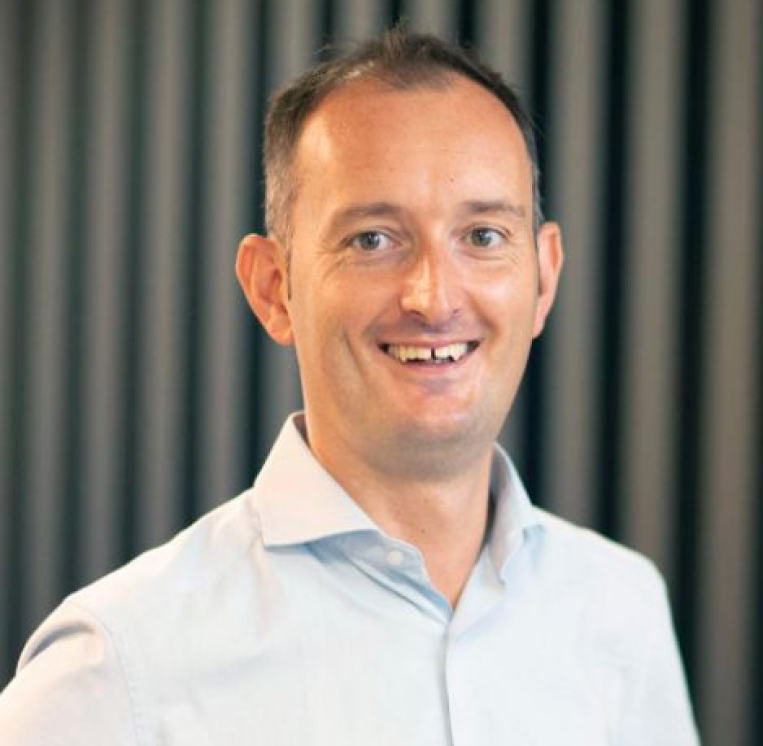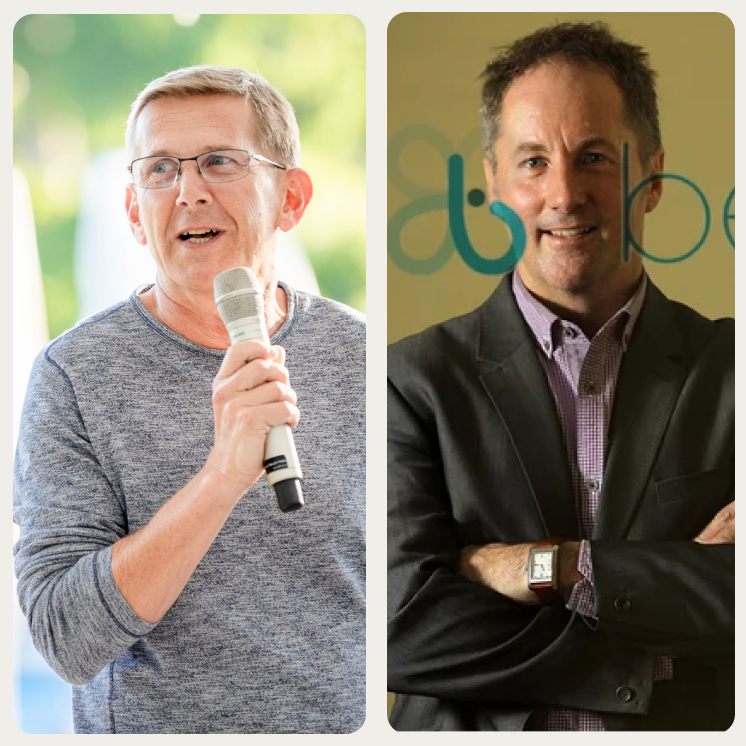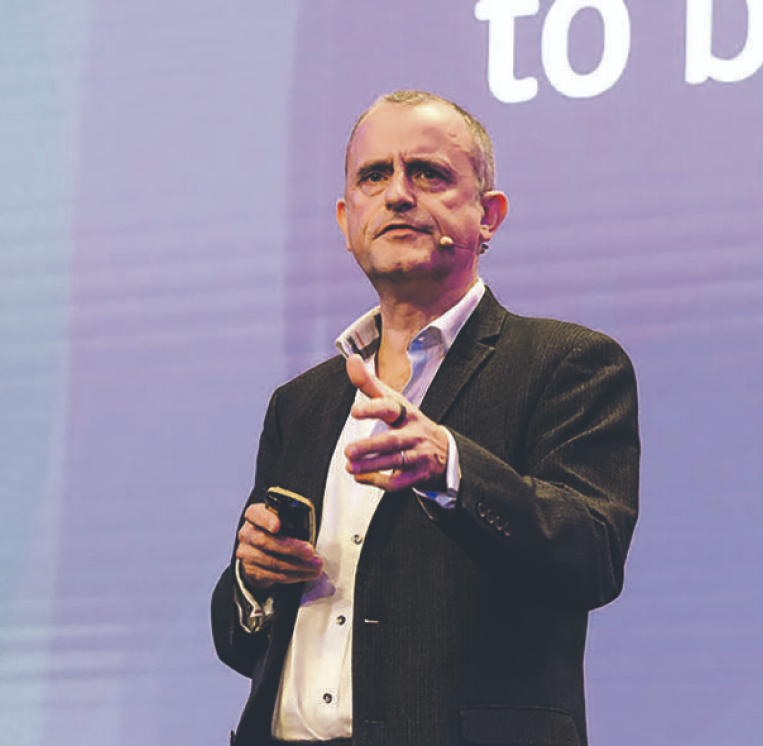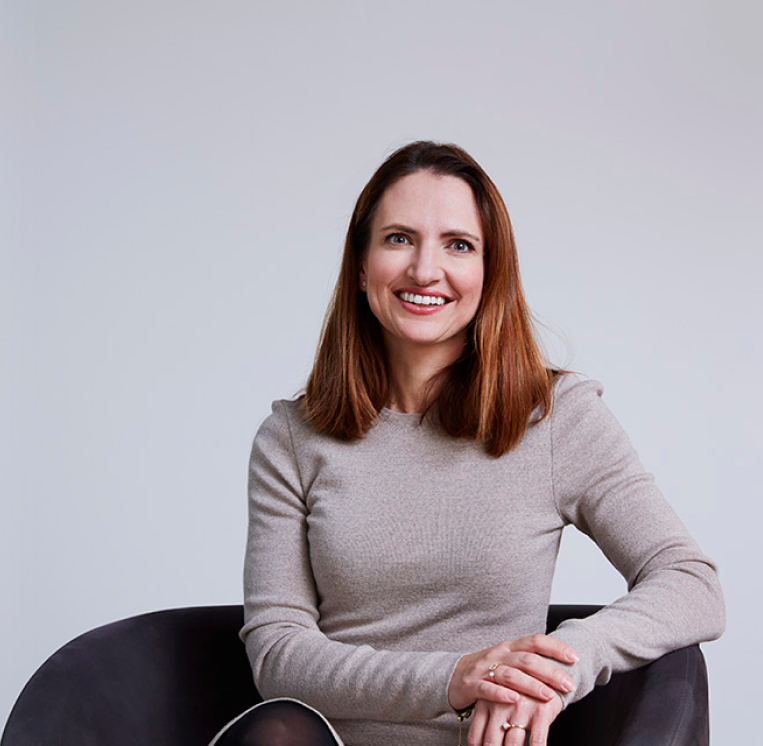Orbit Podcast
Orbit 39
Do tech leaders have to be tech experts?: Elona Mortimer-Zhika of IRIS
As CEO of IRIS Software, Elona Mortimer-Zhika has been a valued part of the Hg Orbit for 8 years and counting. In Orbit 39, she speaks to long-term friend and Hg's Senior Partner, Nic Humphries, about her unusual path to tech leadership:
from Communist Albania to retail jobs in the UK and on to an audit career for Deloitte.
Tracking the stratospheric progress of IRIS over the last decade and considering the effects of private equity investment, Nic and Elona discuss whether or not you need to be a techie to master the constantly moving goalposts of a highly successful software business.
Listen on:
Episode Transcript
Nic Humphries
Welcome to Orbit, the Hg podcast series where we speak to leaders about building and scaling some of the most successful software businesses in the world. My name's Nic Humphries and I'm the senior partner of Hg.
I'm delighted to have my friend Elona here today, Elona Mortimer-Zhika, who is the chief executive of IRIS, originally a UK-only software champion, and today a transatlantican software business that Elona has scaled dramatically over the last five-plus years. Elona's path, from childhood in Albania to scholarships in the UK to auditing career with Deloitte, bucks most of the trends for software business leaders, I think it's true to say, so I'm really looking forward to finding out how that's affected her approach and her career subsequently. So thanks for joining us on Orbit, Elona.
Elona Mortimer-Zhika
Delighted to be here. Thanks for having me.
Nic Humphries
Great. So I see you as something of a kindred spirit, somebody that's in technology, but from a slightly unusual angle. So if you could go all the way back and maybe talk about first job, what do you think the first job taught you that is relevant today?
Elona Mortimer-Zhika
Definitely a very different start to life, absolutely. I was born in communist Albania, so I didn't have much access to tech at all, fair to say. So by the age of 16, when I came to the UK, that was the first time I actually saw a laptop, so I can absolutely say how fascinated I was by that, and the first thing I ever bought with my first job's money as a student was a laptop. To own your own laptop at 18 was a big thing for me.
But in terms of career, proper-proper job was an accountant job. I was always going to be an accountant. I loved the math. My dad was an accountant. I loved my dad. I was going to follow in his footsteps. So I joined Big Four and I did audit and corporate finance. I joined Arthur Andersen then Deloitte, did that for 10 years, but always on software businesses only. So I was in their TMT division: tech media, telecommunications. I audited IRIS as well.
Nic Humphries
I remember that.
Elona Mortimer-Zhika
That's a fun fact for you. It was making about 5 million pounds of EBITDA at the time. And what it taught me at the time was that 80% of the businesses are actually the same. It doesn't really matter what industry you are in. I mean, every business needs a product that a customer is willing to pay for, a product that is going to solve a pain point for a customer so they're willing to part with their money. It needs great people, it needs to keep an eye on the market, and it needs to look after its cash.
And Arthur Andersen was a great training ground, I've got to say, because these are the days pre-Enron, so you didn't have a long audit checklist to follow. Instead, they said you down, told you about business, and then said, "When you look at this business, there's going to be three things that are going to let it down. So go and audit those three things, and then everything else, don't worry so much about it." And it was always going to be revenue. It was always going to be cash, making sure your payroll was reconciled. So I became a bit of a geek in RevRec. I mean, I like auditing. I'm sure you might find auditing exciting.
Nic Humphries
We all like auditing.
Elona Mortimer-Zhika
I don't know, I don't know. But RevRec in auditing is as exciting as it gets, Nic. So SOP 97-2, US GAAP, all my software clients had to follow that. And it was really interesting because it was quite intricate at the time and I quite liked that. I like complex areas and grey areas, so I became a bit of a geek in that. So it taught me about business.
And then I got poached by one of my clients at the time, called Decision. They sold software for text messaging to some of the largest telcos in the world: Sprint, AT&T, Telefonica. And what I learned there is the power of CapEx versus OpEx models when it came to software, because the business was super successful, was making about 500 million pounds of revenue, but it sold on the traditional CapEx model. This is 2009, so a long time ago. I joined 2009, and by 2010, obviously a massive recession hit. And at that point in time, our telcos, our customers, didn't need to buy any more CapEx licenses. They'd bought them as perpetual licenses. They had all the demand they needed and all they needed to do is pay the maintenance. And the maintenance was a 15% detached rate.
So suddenly, overnight, your business revenue declines, and for me, it taught me a lot about the power of that recurring revenue, and I was instrumental in putting together a commercial model and then teach sales as well, along with new commission schemes on how to sell, instead of one-off perpetual, to move to that more recurring model and take your CapEx and two years of maintenance and put it together, divide it by three, and then go and see if you can convince somebody that that's how they should spend their money.
And it's been interesting, actually because at IRIS when I joined, because of you guys and Hg being at IRIS for a long time, they were already recurring, even though they were a desktop on-prem business. But we were buying businesses that weren't recurring. We bought Cascade, massive CapEx up front. We bought another business in education, PS Financials, lots of CapEx up front. And we converted them from day one. We went and commissioned our sales team to go and sell subscription on desktop rather than wait till we moved it to the cloud.
So today, IRIS is 96% recurring, and it was a great lesson for me to learn and one that I've taken with me. But I think my very, very first job, the one that paid for my laptop, was working at British Home Stores, BHS, which doesn't exist today.
Nic Humphries
I know exactly what it was, though.
Elona Mortimer-Zhika
So now I'm very, very old.
Nic Humphries
We're showing our age.
Elona Mortimer-Zhika
I feel very old right now. And I think a stint in retail is really, really important for everybody, because it really teaches you about customers, and that customers are always right. Doesn't matter if they're moaning, they have a reason, they don't have a reason, it doesn't really matter. They're always right. I mean, business, unless you have your customers at the centre of everything you do, you're not going to really grow. So I think a stint in retail is super important.
And actually, interestingly, when Thomas Cook went down a few years ago, we hired a lot of their people and some of our best leaders in our services organization and our support organization today have come from Thomas Cook because hospitality, that B2C way of serving a customer, is really important. Even though we're a B2B business, you're dealing with humans, so learning that B2C is super key.
Probably my most memorable BHS moment was that I worked for this amazing boss. I was 18 years old and I was on tills and money was going missing from the tills, and this guy was amazing and he was getting us together with higher management every day to figure out where that money had gone missing. It was a hundred pound here, 50 quid there. Super customer-focused, genuinely somebody I looked up to, I was impressionable. And then it got found out a few weeks later that it was him that had taken the money all along, and it really taught me a little bit about maybe not judging a book by its cover and not letting your bias... Just because you like somebody, it doesn't mean that you have to trust them. And it was probably amplified by then my later audit experience that you can trust, but you have to verify.
So trust by verify is my motto at work all the time because people give you a story, and the great thing with numbers is that they don't lie. They're very black and white, so I love that, but you have to tell the story. In themselves, they're useless. And then to get to that story, you've got to ask a lot of questions. I love asking questions. And you've got to be willing as a leader, I think, to hold on to conflicting truths, because if I ask you a question about the story, you will give me a different version, which is your truth. It's not incorrect. It's just your truth of what happened. And somebody will give me theirs, and then when you connect those dots, you get to the bigger picture and then you as a leader can use that power and that privilege to make a better business decision because you were able to see the 360-degree view of what happened.
Nic Humphries
Fantastic. There's two or three absolute gems within that last few minutes. I mean, we know each other really, really well, but the parallels are spooky. So one of my first two or three jobs was basically in a retail shop. Actually, my mum and dad had a very small gift shop near Nottingham, and-
Elona Mortimer-Zhika
Did they pay you well, or-
Nic Humphries
They paid me terribly, and if they ever listen to this, I'd like to make a claim for back wages going back at least 35 years. There was a bell on the door. Every time the door pinged and the door opened, you'd look up and you just had no clue really whether this was Mr. or Mrs. Super Awkward, it was the nicest person you've ever met that you wanted to do a favour, but whatever it was, it didn't matter. It was customer service. They were right. You had to make that person feel welcome. And I learned human interaction skills. I learned sales skills, communication skills, all those things from what at the time felt like a pretty dull experience actually, but it wasn't.
Elona Mortimer-Zhika
That's great. It's what I'm going to get my boys to do as their very first job, because right now they want to be YouTubers, and that's not going to happen.
Nic Humphries
So you obviously haven't had a lifelong career in tech, but you obviously haven't needed to to become a highly successful leader of a scale software business. So what do you think are the advantages of your path versus maybe a techie-product person being in a techie-product business. If you could compare contrast them, just be really interested in your thoughts.
Elona Mortimer-Zhika
Yeah. I think fundamentally, to be successful in leading a business, you have to be a leader rather than necessarily good at one thing, because obviously we can't all be good at everything. We've all come from a path. So I came from finance. Somebody might have come from ops, from tech, from sales. And as a leader, what we all have in common, I think, is that we are recognize that you've got to play to your strengths and then use your strengths as the bit that you focus on, and then you've got to be really self-aware of the things that you don't know how to do, and it doesn't matter what those things are.
For me, I wasn't very strong in tech, for example, compared to somebody from the tech background, so that meant I needed to have really good tech people. So you hire an amazing team, and that team has got to cover on all aspects, because as a leader, I always think you're a football manager. I love football, so I don't know if the analogy applies or not, but you're a football manager. You don't need to know to play football. It helps, maybe.
Nic Humphries
Is it Liverpool you like or-
Elona Mortimer-Zhika
It's Liverpool. It's Man United.
Nic Humphries
End this interview right now, as far as I'm concerned.
Elona Mortimer-Zhika
Man United then.
Nic Humphries
As a Man United fan, I've got no interest in the next minute's conversation.
Elona Mortimer-Zhika
Sorry. I have to say Liverpool, otherwise I might get divorced. You did come to our house once and the boys were dressed in Liverpool kits on purpose.
Nic Humphries
I know.
Elona Mortimer-Zhika
I was absolutely horrified. Craig had done that on purpose. I'm sorry. But as a leader, you are a football manager. You don't necessarily need to know how to play football, but you do need to know how the game is played and you do need to have a full team. You can't play on half a team. And you've got to have everybody in the right position and play them to their strengths. You can't put your goalie on a tech. But you also need to have your bench, and that's really important for succession planning. So to me, those are my VPs, because people get tired, people outgrow their role, whatever it might be. So you've always got to think who's going to come in, so I think that's the common from all leaders.
For me, some of the traits that I brought to the table have obviously helped my success when it came to being commercial, understanding the metrics that a business needs to be run on, and making sure that we have a full set of data that we understand those metrics on. Because one thing I found certainly when I came at IRIS is that it was a great business, but it didn't have very good controls over what was going on. I mean, to be honest, it's always been like that. No offense.
When I audited it 25 years ago... Maybe not that long. 23 years ago. It was the worst audit ever. I mean, the business did accounts production, but their accounts wouldn't balance because it was too busy growing itself to worry about the brilliant basics of actually doing your accounts right. So when I joined, I remember the bank rec had 3,000 items in it and we don't pay by check, so that was just people being lazy, if I'm being completely honest. But getting your full data set, making sure everything ties in, and then having it, in our case, in a data warehouse which is multidimensional and can be interrogated live at any point in time and doing that as you scale is super important as well.
So I think that's one of the traits that I probably brought to the table that maybe somebody else might not have done, but they would have had somebody that did it, to be clear, they would've hired a great CFO and they would've done it. But that's super important, because as you grow by acquisition as well, in our case, and you come from a world where you're now selling... I used to sell at an AOV of 4,000 or 5,000 pounds. Now I can sell AOV at 300 quid. Well, I mean, I can't interrogate every single customer. It doesn't work that way.
My previous business, top 20 customers were 80% of the business. I knew what they had for breakfast. At IRIS, it's about cohorts of customers and what do they have in common and how do you interrogate the data, and did they buy one product from you? Did they buy two? And at which point in time are they more willing to churn? At which point in time are they willing to buy the next product and what would that product be based on their previous behaviour? So to do that, you've got to be data-driven, and so I'd say that my background probably helped in making sure that we do that. We can always do better, but I'd like to say that we've put a lot of focus on that area.
We talked at the start of this what makes a good leader, and do you have to be a techie or whatever? And as I said, you just have to be a leader. And for me, whilst I had some expertise and probably a bias from numbers and commercials and all of that, I would say you need to be a critical thinker and be a problem-solver at the same, which looks like they contradict each other, but you've got to be both of those things. You've got to be collaborative and ask your team because they come from diverse backgrounds, but also make really fast decisions when you need to do that.
You've got to be flexible as a leader, but also hold people to account to drive results, and it's how we do it that makes us succeed. It's not necessarily what you know most of the time, because what you know you can build with a team. How you do that is important. So I'd say that great leaders find a problem that they need to solve, and they do that with passion around customer excellence, operational excellence, innovation.
I think better leaders probably reimagine things and challenge the status quo and think what's the problem going to be tomorrow and go and innovate for tomorrow. But the best leaders bring intuition and connectivity with their people, with their customers, with the market to the table and passion, and then what happens is that because of those personal connections, people follow you. You inspire them and they want to be inspiring with you so that they bring all their ideas to the table and then there is that snowball effect that you get to succeed.
So in short, do you have to be a techie? No. Do you have to really know what your product is doing, how your customer is using that product or solution, whatever it is you're selling? Do I need to know exactly what software my customers are using just before they log into my software and what software are they using just after they log out of my software so I understand their journey and I understand how I expand my own TAM in the ecosystem and what answer that software should answer to them and the pain point? 100%. Obviously you need to know that. Do you need to measure the business in line with what... So for us as a tech business, we need to know all our CACs and our LTVs and our attrition and all the exciting stuff. 100%. Do you need to code? No, because I think to me, again, that's about the what rather than the how. So unless you count Minecraft, I definitely cannot code. So hopefully that gave some helpful answer, anyway.
Nic Humphries
It's fantastic perspective, not only on that initial question, but also just on some of the investments that have been made. I think that time it takes, you're going through the valley of despondency when you spend so much time and effort but you're not yet seeing the results. As you were talking, I was thinking about just an element of resilience and an element of conviction. That's where leadership really counts because somebody has to stand up and say, "This is going to work," even when 70% of people may be thinking, "Is it? Really? I'm not sure. There's no effort coming out of it at the moment in time."
Elona Mortimer-Zhika
And it evolves all the time. So to your point, you're never going to get it right first time anyway because you only know what you know, and then what happens over time as you grow, because we're all growing, your business becomes bigger and your world becomes bigger and the world around you changes at a very fast pace anyway. So the moment that you learn the answers, the questions are different anyway. So you've got to keep evolving.
So as much as I was very grateful that you allowed us to spend a lot of money on our project Quantum, our end-to-end product, I now need advanced billing, which I didn't need three years ago, because now I have to bill for usage. Well, I didn't have any products with usage before, so now I've got to go and spend a bit more money. And that's okay because we know how to do it, and yes, it comes with headaches, but fundamentally, you've always got to think about what do I need to put in place today that's going to be fit for purpose five years from now, and embrace technology as that changes around you.
Nic Humphries
Yeah. It's going to change, basically.
Elona Mortimer-Zhika
It's going to change and that's okay. About three years ago, I was worried we're going to run out of runway again. So to grow, we needed a new leg, and maybe we needed legal. Maybe we needed healthcare. Common knowledge that GPs and lawyers use similar practice-management solutions to accountants. So that was the link, use software in the same way. We looked in the UK and there wasn't the obvious leader to buy. There wasn't the one business that we go to that we could have bought and said, "This will get us to top three in the next three years," and then we don't want to be number 10 in the market. We need to be the top three.
And interestingly, we bought a couple of businesses in the UK that happened to have a US operation, and at the time, it was about 3 million each or something like that. It was sub 10 million, anyway, so it was quite small. But to go into a new market, as much as on paper that might look like an okay idea, I think you've got to go into it with your eyes wide open, both feet in, and then be prepared to fail and fail fast as well.
So what we did well, I think, was do an analysis of the market. So we hired OC&C at the time, so they did an outside-in view and figured out that the market was 10 times the size of the UK. There was a ton of similarities between the markets anyway. 99% of the business population was SMEs. They needed an accountant because they couldn't afford to have their own teams. They needed a bureau to do their payroll, because they don't really have it in house. So there was a lot of similarities in the dynamics of the market and the role of an accountant.
I had products that had travelled and were being used in both geographies anyway. The international standards were the same. Some of our customers were the same. And the market opportunity for CPAs and payroll in the US was bigger than the world put together in the markets where we were leaders in. So for us, we knew if we were going to a new geography, we had to go in in an area that we understood. I wasn't going to go and do legal in the US, because I had no DNA, but I had 45 years, or at the time, 40 years of DNA in payroll, a bit of HR, and a lot around accountancy. And given the dynamics in the market, it looked like this could be an opportunity for us.
And we looked at our customers and we saw that 50 of the top 100 had bought these little products that we had bought for the UK. So we thought, "Well, there could be a channel here. This could be really important. Maybe we do have an opportunity." And it was an experiment, and until it got to 50 million of revenue, I ran it out of the UK. So we didn't invest more in it in terms of a local team. It was Covid as well, so that wasn't really helpful.
But one thing that we did do is that we understood from the start that we had zero brand. And whilst all the products in the UK as part of my transformation we spoke about had been rebranded as IRIS, these ones in the US, we just put a little "By IRIS" at the bottom of them, but they were the brands that had to lead because nobody knew us. So we had no brand and we had no right to win. And if you have no right to win, it doesn't matter if what you've got in the UK is an amazing product; the customers are not going to give it to you. It goes back to that trust. Why would they buy from you? So we decided our strategy had to be that we had to go and buy best-of-breed products.
So yes, we were new in the US, but those businesses that we bought, they had been around for 20 years and they came with talented people who knew the market and they came with a brand that people and that customers trusted. And so we were the only ones that went and bought best-of-breed, but most importantly, we then decided to invest in them as well. So it was a growth-mindset strategy rather than go and cut costs. Our competition, and we know them well, we compete with them in the UK, we knew they weren't investing in the product, so we wanted to be the ones that bought the best that existed and the ones that were being futuristic.
Back to my leader needs to think what's the problem of tomorrow rather than the problem of today, you kindly allowed us to do that, and again, that was an experiment, but as long as we put parameters around it and we would fail fast, we could control the cash. So we grew it to that. So we did a bit of practice management, a bit of document management, and got it about 50 million to about 2021, and then it was clear that we needed a team. And my baby I had to hand over to somebody that I trusted, and it took a while.
It took a while to find the right person. We've got a president now called Jim Dunham. Genuinely, one of the reasons I go to bed easier at night is because Jim is there. He is fantastic. And as with every change that you have, you got to spend a lot of time together. Particularly when you are miles away, you've got to know each other.
And me and Jim, I probably worked together for about four or five months before... We both recall it. We'd come back from a conference. We were at the airport. Our flights was late, so we were four hours in the airport together having a glass of wine, eating cheese, and that is when we bonded and spent time as humans and leaders for him to understand how important this was to me, because I live and breathe IRIS and the trust that I had put on him, and for him to fall in love with a business that he had been entrusted.
And then he built his team, and now we've got a team that's built for tomorrow, again, not for today, because our plan is to grow. So it's gone to, as I mentioned, 175 million, and we've done it consciously by hand-picking the businesses that we want to buy by following exactly the same route as how we did it in the UK and learning from the UK success and mistakes as well. There's a ton of support that comes from the UK, so it's not completely siloed, but what it means is that we've been able to now go into accountancy, massively into payroll and a little bit into HR as well, and education is the last bit we haven't done.
And again, to what I said, I've got a product today in the UK that sells internationally that's got US curriculum in it that would be perfect for the US, but why are they going to buy it off me? So if we ever want to move there, if that's what we decide, we will have to buy the best of breed in the market at that point in time and then expand from that perspective.
The good thing we've done in the US is, a bit like an IRIS, we build that into a platform business as well, because that's now 11 businesses and we can't scale with a house of brands. So we've put money not only into systems and everything is done to Salesforce, etc., but most importantly onto platforms. So we bought a payroll platform. It had some functionality in. It was a great platform from a tech perspective, but it had some functionality in it, not a lot. We have collapsed all the other payroll platforms that we have, or products that we have, in terms of functionality, onto that one.
So we've built Canadian payroll in it. We've got now MTL compliance, regulatory compliance for every state in the US into it. We've got bureau functionality into it. So all roads leads to these platforms, and then done the same for accountancy too, because without foundations, one plus one is not going to equal three and you need to do that. So we transformed Americas again and more to do, but super exciting. Super exciting.
Nic Humphries
Brilliant, brilliant story, obviously, and we've been really proud to watch it be so successful. Just tying one last question into that story: so since you became chief exec and transformed the business and invested in the business, you very consistently been right up there with some of the best places to work in the UK, as measured by lots of awards and those kind of things, as you said as well. I know that's a focus for you. How do you actually translate that culture and that thinking into a business that's 3,000, 4,000, 5,000 miles away and different people with different cultural backgrounds and all those things? So how do you think about that on a transatlantic scale?
Elona Mortimer-Zhika
Yeah. It's a very good question. I am all about the people. I think most leaders are all about the people anyway, and I think for me, diversity was really, really important, just because of my personal background coming to the UK, going to an international school that had kids that were a hundred times more clever than me and came from 135 different countries, so I've tried to build a diverse culture where people can bring themselves to the table. I will get to your answer, but to do that, it means you need to create some scale and put some programs in place.
So if I just look at IRIS today, not only do we talk about diversity and the employees are important, but we've got the likes of Peakon, for example, as a tool where... You can use Peakon twice a year if that's what you want. I mean, back in the day when we used to do employee surveys, they were once a year. One day they were out of date by the time your HR department had analyzed them. We send Peakon every single month and we change our questions every single month. So we're absolutely listening to what our employees are saying.
And when we buy businesses, in the US, for example, every new business will take Peakon as part of our M&A integration in its first two months, so that we are listening what those employees are saying, because their concerns as they go through that change curve are going to be very different to people in the UK, for example. So I think having the right tools in place is super important, and having programs in place is super important, because it doesn't just happen. I think as a leader, you give your vision, you say why it's important, and then what happens is once you put programs in place, your employees do it for themselves.
So we have, for example, belonging groups at IRIS. We've got groups around women in leadership, we've got groups around LGBTQ, we've got Black history groups, all of that. That means that there is a place for everybody to join if that's what they want. It's not-
Nic Humphries
Compulsory.
Elona Mortimer-Zhika
...compulsory that people have to do it at all, but what you do is that you create a structure that people want to join so they belong, because fundamentally, that's what people need to feel. When you are building a culture, and it doesn't matter if you're buying new acquisitions or not, they just need to feel like they belong. So by having those programs in place and then making sure that as you buy new businesses, whether they're UK or US, you open them up as part of the onboarding and the training that you do to the new employees and they can get signed up and everything else, then you are making them feel like they're part of a bigger family rather than you went and stamped on their culture.
Being completely honest, we do cultural audits. So before we buy a business, we look at what their culture is like. We ask them for their values. Not every time they're going to give you a set of values. Then you know that you might have a problem. We have our own values. They spell the word IMPACT. They stand for innovation, making it happen, passion, accountability, customer, teamwork. We on purpose made it spell a word because I wanted people to remember it. And often, people have values, but then they just go, "What is it? Is it trust or something? Is it integrity?"
And the thing with values is that they're all important and there is a hundred values you could pick as a business, right? I think the important bit is that you laminate them so that people see it and they make them part of the culture, but you celebrate them. So for us, that was the key. So IMPACT, today, you're in America, you get given a new laptop. You've just joined either as a new employee or through acquisition. Your laptop's desktop will change overnight to IMPACT and it will tell you what that means, and as your laptop's going to sleep, it will do a roll that says, "Innovation stands for this."
Then you get given your mug and your T-shirts, and then you're celebrated because we ask you to nominate yourself sometimes or employees or team leaders that you have seen that have got these particular values. And then those nominations come in, and then we vote for the winners, and the winners are celebrated every quarter. So there is a culture of the IMPACT values within IRIS. And once you've built those work programs, then as I said, it's a lot easier to scale them, but the programs have to exist.
So for us, we got a great place to work now in US and in America as well last year. We have an OKR business, and that was the OKR that was given to the team. And you can't fake it, because the way it happens is you fill the best application form on earth, which our HR team do, so that you qualify, but then they send a survey to your employees. So taking culture seriously is the only way you're going to move forward, because nobody has it perfect. But by asking what your employees feel and then making sure that you listen and making sure that you respond to it, that's how you create a culture that evolves and that's how you create an inclusive culture, because as I said at the start, it's all about belonging.
Nic Humphries
Brilliant. Thank you very, very much indeed, not only for doing this interview, which I'm hugely grateful for, but what you've done in IRIS over the last, well, nearly 10 years, but certainly five years as CEO.
Elona Mortimer-Zhika
I love IRIS, Nic. It's brilliant. It's brilliant.
Nic Humphries
Thank you.
Orbit episodes
Orbit Podcast
The corporate immune system: Google Cloud's Daniël Rood on building Europe's first AI team
Episode detailsOrbit Podcast
Skin in the game: Professor Neil Lawrence on vulnerability, accountability and why the next generation will thrive.
Episode detailsOrbit Podcast
The 3 speed problem: Oji Udezue on CPO leadership in the age of unlimited engineering
Episode detailsOrbit Podcast
Fevered determination: Building Zalos from zero to enterprise in 5 weeks
Episode detailsOrbit Podcast
Trust, velocity, and building the Answer Engine: Dmitry Shevelenko of Perplexity speaks to Farouk Hussein
Episode detailsOrbit Podcast
The long road to the last mile: Nic Humphries and Matthew Brockman reflect on 25 years of Hg
Episode detailsOrbit Podcast
AI, Control Points, and the Next Wave of Vertical SaaS with Tidemark Capital founder, Dave Yuan
Episode detailsOrbit Podcast
A glimpse of the next generation: Zoe Zhao and Annalise Dragic of Azlin Software
Episode detailsOrbit Podcast
The business case for AI: Brent Hayward of Salesforce, David Carmona of Microsoft & Nagraj Kashyap of Touring Capital
Episode detailsOrbit Podcast
Mastering the billion-dollar software playbook: Joe Lonsdale of 8VC & Eric Poirier of Addepar
Episode detailsOrbit Podcast


